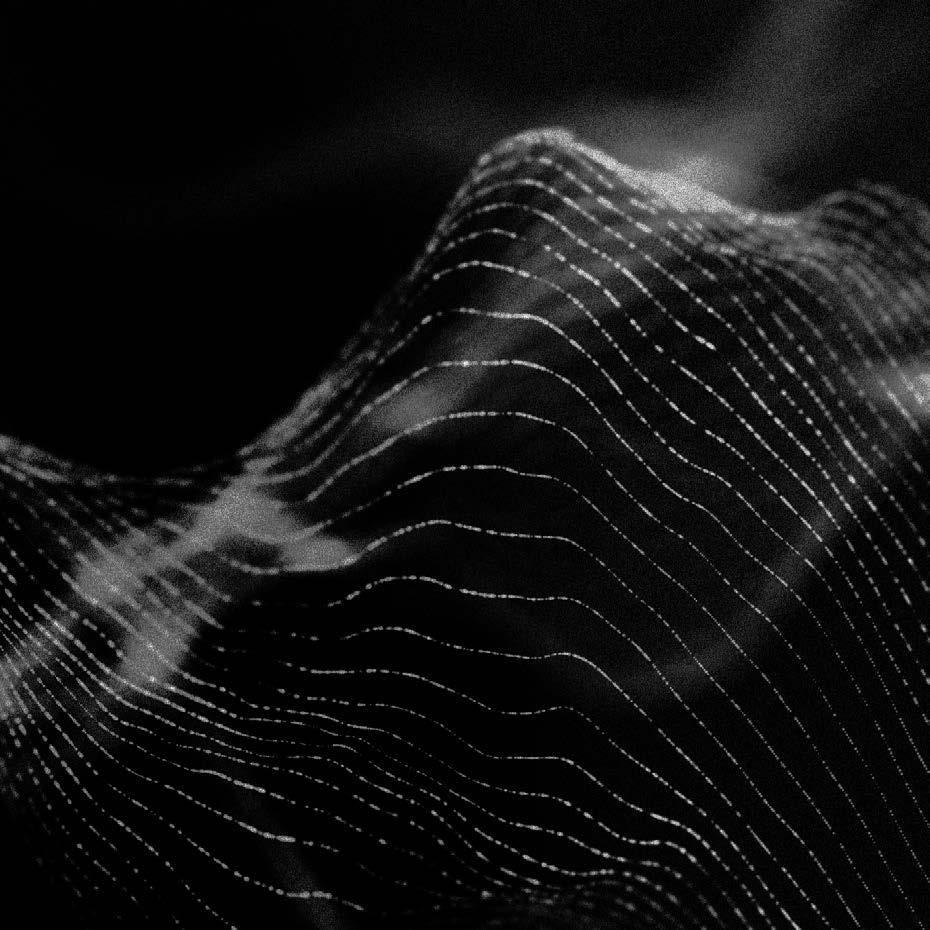

Highlights Te Tau
Hāpaitia te ara tika pūmau ai te rangatiratanga mō ngā uri whakatipu.
Foster the pathway of knowledge to strength, independence, and growth for future generations.
Rārangi ūpoko Contents
Tā te Tumuaki Message from our President
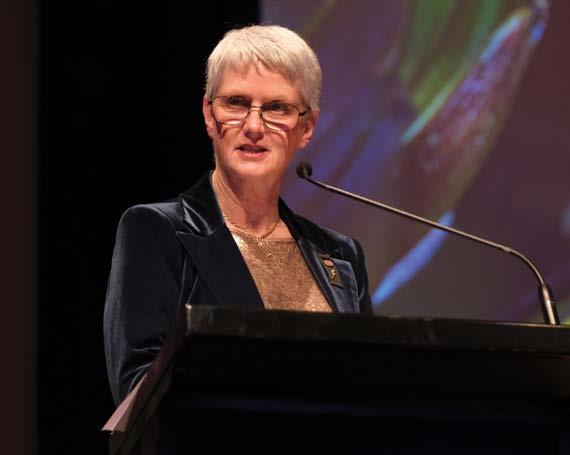
Kia ora koutou,
The 18 months covered in this publication have been a time of change, celebration, and challenge for the Royal Society Te Apārangi and the broader science and research sector.
On the theme of change, it is an honour and a privilege to write this message as President of the Society, a role I commenced on 1 July 2024. I would like to begin by thanking my predecessor Brent Clothier for his leadership and commitment to the Society over his 3-year term.
I would also like to acknowledge our outgoing Chief Executive Paul Atkins. Together with Brent, Paul led development and publication of the Society’s first long-term strategy in 2023. Initiating an intensive round of engagement and consultation across the Society and its stakeholders, they were able to navigate a path between strongly held and divergent views to reach agreement on our shared values and goals for the future.
The result is a robust strategy which sets out the Society’s vision – for an Aotearoa New Zealand that is guided and inspired by science and research. Imagine what could be achieved if we all worked together towards that vision.
The long-term strategy is very clear: to focus on the Society’s people and partnerships, to extend our influence and impact, to strengthen our independence through growth, and to grow pathways for the sharing of knowledge. We have structured this publication – Te Tau Highlights – to align with these strategic priorities.
Early in my term, I was grateful to have the opportunity to visit counterpart organisations in the United Kingdom, Australia, and Canada. Our international partners signalled strong willingness to share information and to collaborate. We discussed engaging with Fellows and other Members, supporting early-career researchers, sharing expert advice, and maximising public engagement, among many other topics.
In Canada, I was privileged to attend the first Tri-Academy Partnership Summit on Indigenous Engagement, hosted by the Royal Society of Canada with support of the Australian Academy of Science. The series aims to address the challenges and opportunities facing Indigenous academics today, and to promote active recognition of Indigenous knowledge systems and languages. The Society will host the second Summit in this series in Tāmaki Makaurau Auckland in November 2025.
Continuing with the theme of change, in February 2025 the Council approved a new governance structure and processes, designed to maximise the Council’s effectiveness in governing and in engaging with the membership. These changes are intended to support the Society to be the best it can be, and to deliver on the Society’s long-term strategy.
The size of the Council has been reduced to eight members (in years when there is no President-elect). A matrix of the skills, experience, and diversity needed on Council has been developed to guide all new appointments.
To improve engagement with Members, each membership group now elects two Members (who are not Councillors) to be key points of contact with the Society. They will lead regular meetings between group Members, the President, other Councillors, the Chief Executive, and staff. I am very much looking forward to these important meetings and hearing about issues of particular concern to the membership.
The second theme over this time was one of celebration. Alongside events to celebrate excellence through the Research Honours Aotearoa and the Prime Minister’s Science Prizes, we marked 30 Years of the Marsden Fund. The Society has managed investments through the Fund on behalf of the government since its inception, and we looked back over the broad range of benefits generated by outstanding researchers leading cutting-edge projects over three decades.
Our vision is an Aotearoa New Zealand that is guided and inspired by science and research
A highlight was an event at Parliament to celebrate the best and boldest ideas supported by the Marsden Fund – ideas with the potential to generate unexpected breakthroughs and innovations with longterm economic, health, social, cultural, and environmental benefits for all New Zealanders. Rt Hon Simon Upton PC FRSNZ, Parliamentary Commissioner for the Environment, reminded us of his aspirations for the Marsden Fund when he instigated it in the mid-1990s.
A panel of top scientists and researchers, led by Professor Emily Parker, Professor Dame Juliet Gerrard, Professor Richard Newcomb, and Professor Chellie Spiller talked about which projects have most captured their imagination and encapsulated the impact of the Marsden Fund.
This brings me to some of the challenges we have faced over this 18-month period, mainly relating to the government’s reforms of the research, science, and innovation sector.
In December 2024, the Investment Plan and Terms of Reference for the Marsden Fund were changed to remove dedicated funding for research in the humanities and social sciences, and to specify that at least 50 percent of funded projects must demonstrate potential to boost the economy. Since then, the government has made successive cuts to the Fund which will bring the baseline funding available from 2028/29 down to $55.8 million, amounting to a 29 percent cut over 3 years from the 2025/26 funding level of $78.5 million.
The Society has repeatedly voiced concerns about these changes in letters to the Prime Minister and in meetings with relevant Ministers. Cuts to the Marsden Fund will significantly reduce fundamental research in this country, with important unintended consequences for New Zealand’s future prospects. We will continue to advocate strongly for the importance of fundamental research, including in the humanities and social sciences, to New Zealand’s future.
Other challenges faced over this period are of a more personal nature, following the deaths of several dear and cherished people connected with the Society.
Professor Angus Hikairo Macfarlane
CNZM FRSNZ (Ngāti Whakaue, Te Arawa) was a leading scholar, based at Te Whare Wānanga Waitaha – the University of Canterbury, who not only earned an international reputation for advancing knowledge within his specialist fields, but also generated significant impact in both education and research. Angus shared his expertise generously, particularly through mentoring and support for other Māori scholars, and he contributed greatly to the Society’s work through the Academy and panels for the Marsden Fund.
Dr Dianne McCarthy CNZM CRSNZ was not only a prominent scientist and scientific leader but also served the Society for many years as a Council member and then as Chief Executive. In this last role, she oversaw the redevelopment of our Thorndon campus, including the beautiful building we now inhabit. She was also deeply committed to supporting earlycareer researchers and women in science. She was a friend and mentor to many of us, myself included, and will be sorely missed.
Dr Heidi de Ronde was a treasured member of the kaimahi staff at the Society, in her role as a Kaiarotake Rangahau Research Assessor. Heidi always went the extra mile to help and inspire others, baking geocakes to explain geology, organising staff members to take part in the Aotearoa Bike Challenge, and mentoring students in STEM subjects.
He maimai aroha Angus, Di, and Heidi.
Nau mai, haere mai,
Distinguished Professor Dame Jane Harding
DNZM FRACP FRSNZ
President, Royal Society Te Apārangi
Our Council
The Society is governed by our Council. Over the 18-month period of this report, we farewelled our President Dr Brent Clothier FRSNZ, who completed his term on 30 June 2024. We also farewelled two Councillors: Associate Professor Sereana Naepi MRSNZ, and Professor Te Kani Kingi MRSNZ (Ngāti Pūkeko, Ngāti Awa, Ngāti Tai). We thank them all for their contributions to the work of the Society.
We welcomed three new Councillors during this period:
Distinguished Professor Christine Kenney MRSNZ, Dr Libby Harrison and Associate Professor Htin Lin Aung MRSNZ. Distinguished Professor Dame Jane Harding DNZM FRACP FRSNZ began her term as President on 1 July 2024.
COUNCIL FOR 12 MONTHS FROM 1 JULY 2024:
PRESIDENT
Distinguished Professor Dame Jane Harding DNZM FRACP FRSNZ
ACADEMY EXECUTIVE COMMITTEE
Distinguished Professor Geoff Chase FRSNZ (Chair)
Professor Susy Frankel FRSNZ (Deputy Chair)
COUNCILLORS
Associate Professor
Htin Lin Aung MRSNZ
Dr Marie Bradley MRSNZ
Dr Libby Harrison
Distinguished Professor Christine Kenney MRSNZ (Te Ātiawa ki Kāpiti, Ngāi Tahu, Ngāti Toarangatira)
Professor Cate Macinnis-Ng MRSNZ
Professor Jens Mueller
MNZM MRSNZ
Jenny Pollock CRSNZ
Distinguished Professor Steven Ratuva FRSNZ
Dr Erena Wikaire MRSNZ (Ngāpuhi, Ngāti Hine, Te Kapotai, Te Hikutu)

FAREWELL TO PRESIDENT
DR BRENT CLOTHIER FRSNZ
We are grateful to Brent for ably steering the Society through the global crises in 2021 and 2022, and for leading the Society’s development of its long-term strategy to 2042. This set out the Society’s vision, as a compass to guide our journey towards an Aotearoa New Zealand that is guided and inspired by science and research.
Shortly after the end of Brent’s presidency, he was presented with a Friendship Award from the Chinese Government in Beijing. This is the People’s Republic of China’s highest award for “foreign experts who have made outstanding contributions to the country’s economic and social progress”. Brent has worked with Chinese collaborators for nearly 25 years, having especially close links to Beijing Forestry University and China Agricultural University where he has Adjunct Distinguished Professorships. In 2019 he became the only New Zealander to be elected as an Academician (International) of the Chinese Academy of Engineering.
Knowledge pathways 01

Journals expand global readership with Wiley
THE SOCIETY PUBLISHES EIGHT QUALITY INTERNATIONAL JOURNALS ACROSS DIVERSE FIELDS. WE ARE ACTIVELY ENHANCING OUR GLOBAL PROFILE BY ENGAGING WITH RESEARCHERS AT ALL CAREER STAGES WORLDWIDE, WITH A PARTICULAR FOCUS ON THE SOUTHERN HEMISPHERE AND GLOBAL SOUTH.
In June 2025, the Society announced that, from 2026, these journals will be published in partnership with Wiley, one of the world’s largest publishers and a trusted leader in research and learning.
First published in New Zealand in 1867, the Society’s journals showcase research discoveries from Aotearoa New Zealand and around the world, with overseas contributions steadily increasing in recent years. The transition to Wiley comes at a crucial moment, as the journals are growing at an unprecedented rate. In 2024 alone, the Society’s journals received 1,785 submissions and published more than 500 papers.
Fei He, Head of Publishing at the Society, said this partnership presents a valuable opportunity to extend the influence of our journals and deepen engagement with the global research community, while continuing to nurture our strong foundation in New Zealand. “Partnering with Wiley equips us to grow with purpose and confidence in a dynamic publishing environment”, Fei says. It will enable more researchers to publish their papers open-access and Members of the Society will receive complimentary digital access to our journals.
The Society sincerely thanks Taylor & Francis for their 16 years of partnership, during which they supported the growth and international reach of our journals.


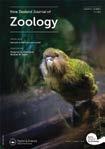



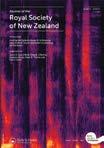

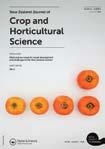
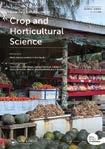
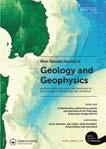
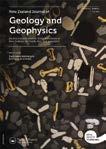
SPECIAL ISSUES
In addition to regular journal issues, each year our journals publish special issues on specific research areas, offering opportunities to review, propose new approaches, and encourage new lines of research. Over 2024–25, titles included ‘New Zealand and Antarctica in a Changing Climate’, ‘Fossil Vertebrates from Southern Zealandia’, ‘Hearing and Balance Research in Aotearoa New Zealand’, ‘Plant Science in the Pacific’, and ‘Disastrous Futures? Confronting the Scale, Urgency and Complexity of Our Crises’.
Enhancing the teaching of science in schools


Since 2015, the Science Teaching Leadership Programme has supported primary, intermediate, and secondary schools to transform science teaching and learning in their hapori (communities).
To date, 220 teachers have benefited from this remarkable programme, which empowers schools to improve student learning and grow scientifically literate communities. It combines professional development workshops, a 6-month placement in a local science-sector organisation, and leadership training to equip teachers with the skills and confidence to lead science education in their kura (schools).
Teaching leadership in action
Dr Aidan Kiely from Aorere College (Papatoetoe, South Auckland), was part of the Science Teaching Leadership Programme in 2021. He was awarded the Prime Minister’s Science Teacher Prize in 2024 in recognition of his skills and commitment in teaching, and strong focus on achieving equitable outcomes in science education.

Aidan says his community needs more Māori and Pacific voices in areas like healthcare and urban planning, “and all sorts of other spaces that come from these science ideas”. He says that if students aren’t accessing science education that captures them early enough, these career paths can close off for them.
He ensures that science education supports students and the issues that affect them, “making it important and visible so that science is not something that someone else does. It makes them want to be interested and ask more questions, so that ultimately, they can see themselves as successful scientists, whether they continue on in science as a career or just engage with their communities.”
Aidan’s inspiring leadership, and his innovative and inclusive approach have made a measurable impact across Aorere College, lifting student engagement and strengthening science education.
"It makes them want to be interested and ask more questions, so that ultimately, they can see themselves as successful scientists, whether they continue on in science as a career or just engage with their communities."
DR AIDAN KIELY
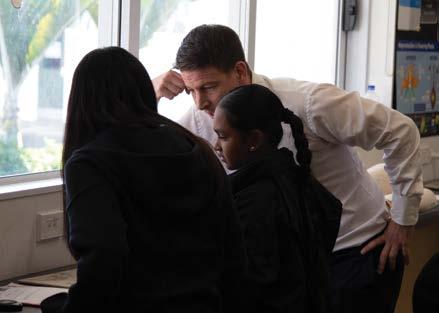
Taiao Aronui

Launched in 2021 as a kaupapa Māori adaptation of the Science Teaching Leadership Programme, Taiao Aronui has been co-designed with Ngāti Whakaue and Te Arawa, to embed local mātauranga (knowledge) about the taiao (environment) and pūtaiao (science) in science education.
Three schools, Rotorua Primary School, Te Rangihakahaka Centre for Science and Technology, and Whangamarino Primary School, put 32 kaiako (teachers) forward to participate in an 18-month programme of science learning and leadership development.
In January 2025, a 3-day wānanga was held in Waikaremoana for kaiako and their tumuaki (school leaders) focused on te ngāhere (the forest). Local experts in mātauranga Māori shared the whakapapa
and local narratives of the Tūhoe people, their relationship with Te Arawa, and their deep connection with the taiao of Te Urewera. It explored cultural values in assessing the health of the forest and provided hands-on learning in traditional Māori practices such as preparing muka (flax fibre) and making tānekaha (dye). These experiences deepened participants’ understanding of how Tūhoe have historically thrived in Te Urewera.
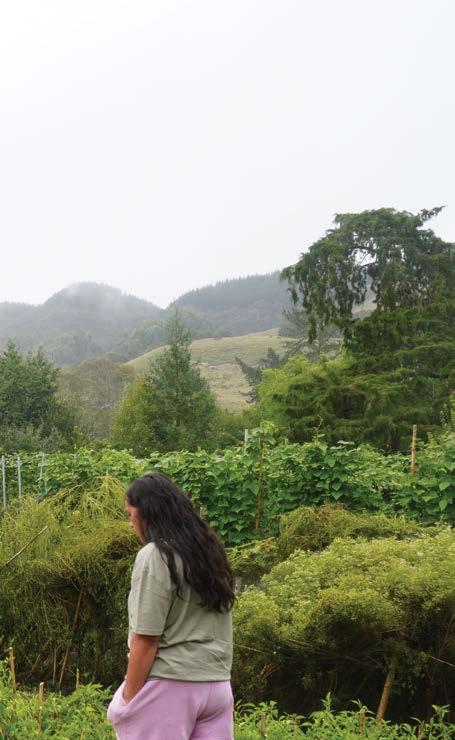

The Science Teaching Leadership Programme and Taiao Aronui are funded by the Ministry of Business, Innovation and Employment.
“I enjoyed seeing the culturally relevant themes used for scientific approaches and tree management. This reinforced the kōrero that occurred the previous day that pūtaiao is represented in our whakapapa.”
“Using the taiao and local landmarks as teaching tools will help my students connect with their whakapapa and understand the importance of caring for their environment.”
PARTICIPANTS IN TAIAO
ARONUI

The Society supports students to participate and compete in science and technology events in Aotearoa and overseas. In May 2025, two students represented New Zealand at the Regeneron International Science and Engineering Fair in the United States of America, and both placed in their categories – an outstanding achievement.

Success at international science and technology fair
Jesse Rumball-Smith, a year 13 student at Wellington College, placed first in the behavioural and social sciences category for his road-safety app, winning US$6,000 and US$1,000 for his school and his fair. Jesse’s project, ’Building A Better Backseat Driver’, uses the ubiquitous smartphone in tandem with psychologically-backed behavioural interventions to improve road safety.
Isabelle Aduna, a year 11 student at Wellington Girls’ College, placed third in the chemistry category for her eco-friendly production of solar panels, winning US$1,200. Isabelle’s project, ’Power-Up with Produce’, explored using locally sourced fruit and vegetable waste as natural dyes for a special type of solar panel that would be more sustainable and cost-effective than traditional photovoltaic cells.
The Society would like to acknowledge the work of Amanda Hood (a teacher at St Patrick’s College) and Sylvia Nichol (an atmospheric scientist at NIWA) who run the NIWA Wellington Regional Science and Technology Fair. Amanda Hood accompanied the students to the USA where they were also supported by the Australian Science and Engineering Fair.
Powering Potential
Our Powering Potential workshops allow rangatahi (youth) to gain hands-on experience with science-related activities and visits, all while developing skills in problem-solving, leadership, and research. Through the 3-day workshops, students are guided to become future leaders – the people who will collaborate to find clever solutions to our world’s biggest challenges.
We delivered Powering Potential events in Tāmaki Makaurau Auckland and Pōneke Wellington to around 100 tauira (students) during this period. At each workshop, tauira worked in teams to investigate research questions with the guidance of expert researchers. The topics ranged from using kaupapa Māori methods to understand the concept of kāinga (home) in relation to housing aspirations to investigating the feasibility of solarpumped hydro as an energy-storage system.


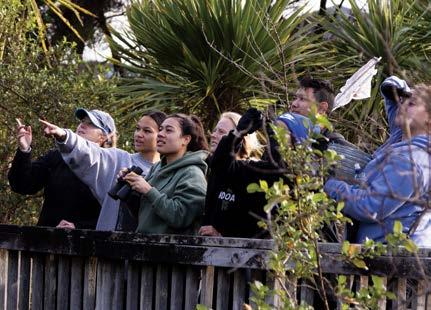
"My Powering Potential highlights include meeting new and inspiring people who share a passion for science and the exciting field trips to NIWA and the Victoria University of Wellington Coastal Ecology Lab."
PARTICIPANT IN THE PŌNEKE WORKSHOP
Scholarships to study
statistical genetics
THREE POSTGRADUATE STUDENTS – THALIA HEIWARI, PAIGE MATHESON AND ZANETTA TOOMATA – WERE SUPPORTED TO ATTEND THE 2025 BRUCE WEIR SUMMER INSTITUTE IN STATISTICAL GENETICS IN GEORGIA, UNITED STATES OF AMERICA, THROUGH A GENEROUS GIFT FROM PROFESSORS BRUCE AND BETH WEIR.


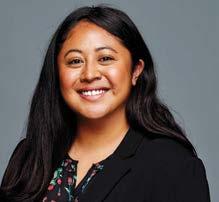
Professor Bruce Weir FRS FRSNZ is an expert in statistical and forensic genetics.
A Fellow of the Royal Societies in both the United Kingdom and New Zealand, Bruce has also been honoured as a Guggenheim Fellow and as a Fellow of the American Association for the Advancement of Science, and the American Statistical Association.
The students were inspired by the intensive 2-week course at the Summer Institute. Paige said she learned that even with the powerful tools we have, “we’re only just scratching the surface of what is possible, and that’s really exciting”.
“One of the biggest takeaways for me was learning how concepts from other fields such as medical genetics and breeding can be applied to my own research in invasion geonomics. It really highlighted the interdisciplinary nature of genetics and geonomics and how much we can learn just by drawing from different fields of research.”
PAIGE MATHESON
L to R: Thalia Heiwari, Paige Matheson, and Zanetta Toomata.
Tāwhia te Mana Research Fellowships

The suite of three Tāwhia te Mana Research Fellowships was introduced in 2024 to support researchers at different career stages to produce excellent and impactful research. The Fellowships are designed to support career development, retain leading researchers in Aotearoa New Zealand, and enhance equity and diversity within the science, innovation, and technology system.
The Fellowships are managed by the Society on behalf of the Government, with funding from the Ministry of Business, Innovation and Employment. They replace the James Cook Research Fellowships, Rutherford Discovery Fellowships, and Rutherford Foundation Postdoctoral Fellowships.
“These Fellowships will produce significant scholarly and real-world impact for Aotearoa New Zealand and beyond.”
PROFESSOR PETER DEARDEN, INTERVIEW PANEL CHAIR, MANA TŪĀNUKU RESEARCH LEADER FELLOWSHIPS
Mana Tūārangi Distinguished Researcher Fellowships
THESE FELLOWSHIPS ARE FOR DISTINGUISHED RESEARCHERS WHO HAVE ACHIEVED EXPANSIVE CAREER SUCCESS AND PROMINENT INTERNATIONAL REPUTATIONS. THE FELLOWSHIPS ARE DESIGNED TO ENABLE THESE RESEARCHERS TO MAKE CONTRIBUTIONS THAT WILL EXTEND BEYOND THEIR OWN CAREER SPANS.

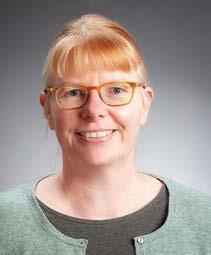
The two inaugural recipients of the Mana Tūārangi Fellowships were:
1. Professor Christian Hartinger FRSNZ, Waipapa Taumata Rau – University of Auckland, to study the interactions between metal complexes and proteins to unlock applications in medicine and industry.
2. Professor Patricia Hunt , Te Herenga Waka – Victoria University of Wellington, to use quantum chemical modelling to investigate ionic liquid micro-propulsion systems for mini satellites.
Mana Tūānuku Research Leader Fellowships

THESE FELLOWSHIPS ARE FOR MID-CAREER RESEARCHERS, TO ALLOW THEM TO FURTHER ESTABLISH THEMSELVES AS RESEARCH LEADERS IN THEIR FIELDS.

Ten Mana Tūānuku Fellowships were awarded in 2024:
1. Dr Manpreet Dhami, Manaaki Whenua – Landcare Research, to study whether optimising the gut microbiome of endangered native birds that were raised in captivity can improve their survival in the wild.
2. Dr Moses Faleolo, Te Herenga Waka – Victoria University of Wellington, to study how Pacific perspectives and traditions from community members, as well as practitioners, managers, and decision-makers in the criminal justice sector, can be used to inform prevention of gang violence.
3. Dr Andrew Hall , Waipapa Taumata Rau – University of Auckland, to study how to reduce noise and improve ventilation for healthier homes in Aotearoa New Zealand.
4. Dr Jenni Hopkins, Te Herenga Waka – Victoria University of Wellington, to study the composition and dispersal of toxic volcanic ash for better preparedness in case of future volcanic eruptions in Aotearoa New Zealand.
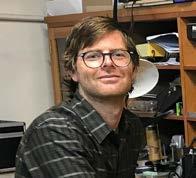

5. Dr Rebecca Kiddle (Ngāti Porou, Ngāpuhi), Te Wānanga o Aotearoa, to study the spatial layout of urban centres in Aotearoa New Zealand to inform approaches to combat in-built injustice through fairer distribution of resources and opportunities.
6. Dr Graham McCulloch, Ōtākou Whakaihu Waka – University of Otago, to study how widespread human-induced deforestation and subsequent reforestation have shifted the evolutionary trajectories of native insects of Aotearoa New Zealand.
7. Dr Christina Painting , Te Whare Wānanga o Waikato – University of Waikato, to study how native insects are coping with climate change through changes in the chemical composition of waxes coating their bodies that enhance their resilience to hot and dry conditions.
8. Dr Rachel Purcell , Ōtākou Whakaihu Waka – University of Otago, to study how the microorganisms naturally living on and in humans influence the development of colorectal cancer, and whether this offers new pathways for the diagnosis and treatment of patients.

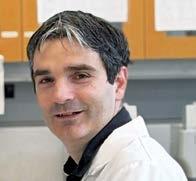
9. Dr Matiu Rātima (Whakatōhea, Ngāti Pūkeko), Ōtākou Whakaihu Waka – University of Otago, to develop culturally responsive support for educators and communities to enable achievement for Māori students.
10. Dr Helen Woolner, Te Herenga Waka – Victoria University of Wellington, to employ genetic and biochemical analyses, combined with traditional knowledge from Pacific Island peoples, to identify molecules from marine organisms that have antimicrobial activity.
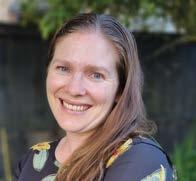



Mana Tūāpapa Future Leader Fellowship
THESE FELLOWSHIPS WILL SUPPORT TALENTED EARLYCAREER RESEARCHERS TO GET ESTABLISHED.
The 20 inaugural Mana Tūāpapa Fellowships were awarded to:
1. Dr James Berghan (Te Rarawa, Te Aupōuri), Te Herenga Waka – Victoria University of Wellington, to bridge the gap between evidence-based urban design and community understanding of its benefits.
2. Dr Neil Birrell, Waipapa Taumata Rau – University of Auckland, to study population dynamics in native insects to inform evidence-based approaches to their conservation.
3. Dr William Holmes-Hewett, Te Herenga Waka – Victoria University of Wellington, to generate new materials based on rare-earth nitrides to use for superconducting components in quantum computers.
4. Dr Eileen Joy, Waipapa Taumata Rau – University of Auckland, to study whether the overseas evidence that often underlies policy decisions on social wellbeing in Aotearoa New Zealand is relevant in the context of our country’s unique population.
5. Dr Jeff Lang, Lincoln Agritech, will develop and validate a novel approach for identifying past earthquakes, their shaking intensities, and dates using
traditional knowledge, historical records, and traces of magnesium within the caves of Aotearoa New Zealand.
6. Dr Ngahuia Mita (Te Aitanga-a-Māhaki, Ngāti Porou, Ngāti Hako), Rehutai Consulting and Tairāwhiti Waka, will explore mātauranga (knowledge) and kaupapa (practices) related to waka hourua (double-hulled sailing canoes), and how they can influence identity, kaitiakitanga (guardianship), and hauora (wellbeing) for crew and communities.
7. Dr Karamia Müller, Waipapa Taumata Rau – University of Auckland, to research the cultural practices, social institutions, and traditional knowledge of Pacific peoples to improve housing for Pacific communities in Aotearoa New Zealand.
8. Dr William Pearman, Waipapa Taumata Rau – University of Auckland, to study how communities of microorganisms living in or on animals (microbiomes) coevolve with the animals in response to environmental changes over hundreds of years.









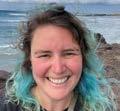


9. Dr Chris Puli’uvea, Te Wānanga Aronui o Tāmaki Makau Rau – Auckland University of Technology, to research genetic variants that affect the immune system and are unique to Māori and Pacific peoples, and therefore inform adaptation of international research for healthcare in Aotearoa New Zealand.
10. Dr Farha Ramzan, Waipapa Taumata Rau – University of Auckland, to study the anti-inflammatory effects of kawakawa leaves for treatment of obesity, which is commonly associated with chronic inflammation.
11. Dr Shane Rooyakkers, Te Pū Ao – GNS Science, to study volcanic activity along the Tonga-Kermadec arc, a 2,500 km-long chain of volcanoes spanning from Tonga to Aotearoa New Zealand, to improve risk mitigation for future eruptions and tsunamis.
12. Dr Rituparna Roy, Te Whare Wānanga o Waikato – University of Waikato, will study ethnic inequity, racial justice, and why political measures are failing to address ethnic pay inequities.






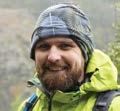

13. Dr Alex Schuddeboom, Te Whare Wānanga o Waitaha – University of Canterbury, to explore the impacts of climate change in Aotearoa New Zealand by developing a simple lowcost stochastic weather generator based on publicly available climatemodel data.
14. Dr Matthew Scobie (Ngāi Tahu) Te Whare Wānanga o Waitaha – University of Canterbury, to use kaupapa Māori research to investigate ways to transform the political economy in Aotearoa New Zealand to enable social and ecological justice.
15. Dr Rose Stuart, Ōtākou Whakaihu Waka – University of Otago, to study the diversity and ecology of animals in deep glacier-formed lakes in the southwest of Aotearoa New Zealand.
16. Dr Stephanie Stuteley (Ngāti Tarāwhai, Ngāti Pikiao) Waipapa Taumata Rau – University of Auckland, will research a promising new method for circumventing antimicrobial resistance against treatments for tuberculosis.
17. Dr Lauren Vinnell, Te Kunenga ki Pūrehuroa – Massey University, to study people’s preparedness for natural hazards in relation to their perception of risk, and therefore to inform communication efforts to reduce risk through public preparedness.
18. Dr Ying Wang, Waipapa Taumata Rau – University of Auckland, to investigate how to codesign resources and training to enhance cultural competency for working with Asian learners in schools in Aotearoa New Zealand.
19. Dr Leighton Watson (Ngāi Tahu) Te Whare Wānanga o Waitaha – University of Canterbury, to develop advanced geophysical tools for detecting and forecasting snow avalanches in alpine regions.
20. Dr Bicheng Zhu, Waipapa Taumata Rau – University of Auckland, will develop hydrogel soils from electrically conducting polymers to enhance agricultural productivity and sustainability.

ORCID: digital infrastructure to support researchers

As part of the Society’s support for scientists and researchers, we manage the ORCID Consortium in Aotearoa New Zealand.
The ORCID iD (the Open Researcher and Contributor iD) is a unique digital identifier that distinguishes a researcher and their publications, grants, and awards from those of any other researchers with the same name.
The Society promotes adoption of ORCID identifiers and provides guidance and technical assistance. More than 80 percent of publicly supported researchers in New Zealand now have an ORCID record. ORCID enables trusted organisations like publishers, funders, and research institutions to record authenticated data to each researcher’s ORCID profile. This saves time, ensures accurate records of researchers’ achievements, and promotes global visibility and international collaborations for researchers in Aotearoa New Zealand.
In 2025, the Society updated the New Zealand ORCID Hub to recognise new types of work related to a broader range of disciplines and knowledge systems. These include designs, images, moving images, sounds, musical compositions, blog posts, conference presentations, conference proceedings, clinical studies, learning objects, cartographic materials, transcriptions, and public speeches.
Marsden Fund Te Pūtea Rangahau a Marsden RESEARCH EXCELLENCE

In 1994, Rt Hon Simon Upton PC FRSNZ, then Minister of Research, Science and Technology, had a bold vision for fundamental research when he established the Marsden Fund. Its initial objectives were to underpin our scientific knowledge and deepen our research skill-base, with grants awarded on the basis of ingenuity and the likelihood of generating some ‘first-class science’. And what first-class research we have seen in 30 years!
From the outset, receiving a Marsden Fund grant was recognised as a hallmark of excellence – through which excellent researchers would pursue their boldest ideas. The first black hole has been photographed, planets discovered, ancient civilisations unearthed, energy sources explored, technology and medicine advanced, climate knowledge expanded, legal systems challenged, culture revitalised. Put short, we have increased our knowledge about our world and ourselves, built innovation and capacity, supported careers, and augmented the place of Aotearoa New Zealand research on the world stage.
First-class research is borne from more than great ideas. More often than not, it takes years of collaboration, institutional support, and a mosaic of funding before downstream benefits are delivered. In reflecting on the Marsden Fund within the wider system, we are proud of the many ways it has been a pivotal agent of change.
We acknowledge the high calibre of applicants, and those who ensure that the assessment process is fair and identify the most excellent work available. This includes the many thousands of overseas referees who have provided independent assessments over the years.
Looking to the future, the Government has set clear priorities for investments generating economic, environmental, or health benefits for New Zealand. We have exceptional research talent in this country, across a broad range of disciplines, and our focus continues to be on the key objectives of excellence, connectivity, diversity, and scholarly impact.
A message from Professor Gill Dobbie FRSNZ, Chair, Marsden Fund Council (abridged )

CELEBRATING FUNDAMENTAL RESEARCH
On Wednesday 7 August 2024, Hon Judith Collins KC, then Minister of Science, Innovation and Technology, hosted an event at Parliament with the Chair of the Marsden Fund Council, Professor Gill Dobbie FRSNZ to recognise the contribution of the Marsden Fund in supporting excellent research for 30 years.
The event included a panel discussion between Professor Emily Parker FRSNZ, Professor Dame Juliet Gerrard, Professor Richard Newcomb, and Professor Chellie Spiller (Ngāti Kahungunu). They talked about Marsden Fund projects that inspired them personally and encapsulated the importance of the fund.
Speaking at the event, Simon Upton said that initiating the Marsden Fund remains “the best thing I’ve done in public life”. The gathering provided an opportunity to reflect on the myriad benefits and impacts which have flowed from the Marsden Fund’s investments over three decades, including careers supported, international collaborations generated, and world-class research achieved.


L to R: Dr Mark Stagg, Professor Gill Dobbie FRSNZ, Hon Judith Collins KC, and Paul Atkins.
Rt Hon Simon Upton PC FRSNZ
Impact of the Marsden Fund –special feature series
In its three decades of supporting investigator-led research, the Marsden Fund has catalysed a catalogue of breakthroughs. To celebrate this, we highlight a few of these areas of research. Each speaks to a whakapapa of research and the building of innovation and capacity through themes of collaboration, great ideas, and the necessary breadth of funding that leads to downstream benefits for the country.

ANTARCTIC RESEARCH:
The first grant in New Zealand to pursue Antarctic research was from the Marsden Fund. Its timing was critical, supporting early ice-core drilling expeditions and expediting the establishment of the Antarctic Research Centre.

EARTHQUAKE MODELLING AND ENGINEERING:
Over the past 15 years, New Zealand experts in earthquake engineering have examined how what’s on the surface of the earth affects groundshaking. The increase in ability of high-performance computers has been vital – while we cannot predict earthquakes, we can forecast them.
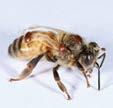
ECOLOGY:
New Zealand has produced stand-out research in biodiversity, pollinator networks, and food webs. One such project, enabled by the Marsden Fund, has become the basis of gold-standard pest control management – enabling one species to be targeted without harming others.

IMMUNOTHERAPY:
Researchers are discovering new ways to train or assist the immune system to fend off cancers and diseases. Pioneering work has included studies showing how dendritic cells stimulate the activity of T cells, contributing to the now widely accepted view that no two dendritic cells are the same - and a breakthrough in vaccine development.


ASTROPHYSICS:
The Marsden Fund has enabled our researchers to pioneer cutting-edge techniques and collaborate in international space programmes. For example, our participation in the IceCube neutrino observatory in Antarctica has enabled a series of breakthroughs including the first image of the Milky Way using particles instead of light.
CHILDHOOD DEVELOPMENT:
Influential work on language development and self-regulation in children has resulted in changes to teaching practices in New Zealand and has the potential to revolutionise childhood education on an international scale.

WOMEN’S REPRODUCTIVE HEALTH:
New Zealand research has provided insights on how neural networks coordinate to control reproductive functions. This is contributing to global understanding of endometriosis and pregnancy health, and the interplay with infertility.

MĀTAURANGA:
Many Māori-led research projects have been supported over the lifetime of the Marsden Fund, enriching our cultural heritage. These cover a wide range of areas, from the digitisation of Māori language newspapers, to Matariki, language revitalisation, and Māori art history.

NANOSCIENCE:
From its inception, the Marsden Fund invested in fundamental science at the atomic scale, leading to many significant insights and discoveries. Advances in superconducting look set to enable stepchange increases in the power-density and efficiency of electric machines, such as high-speed trains and all-electric aircraft.
Marsden Fund 2024 investment round
IN 2024, THE MARSDEN FUND INVESTED IN 113 CUTTING-EDGE RESEARCH PROJECTS, INCLUDING TOPICS WITH THE POTENTIAL TO REVOLUTIONISE CHILDHOOD EDUCATION, OFFER NOVEL SOLUTIONS TO THE CLIMATE AND ENERGY CRISES, AND OVERCOME ANTIMICROBIAL RESISTANCE.
One large, interdisciplinary project received a Marsden Fund Council Award, worth $1 million (ex GST) per year over 3 years. An international team led by Professor Elaine Reese FRSNZ (Ōtākou Whakaihu Waka – University of Otago), Professor Justin O’Sullivan (Waipapa Taumata Rau – University of Auckland) and Professor Vincent Reid (Te Whare Wānanga o Waikato – University of Waikato), aims to address declining academic achievement and wellbeing among schoolchildren in Aotearoa New Zealand via an ambitious longitudinal study.
The Marsden Fund awarded 69 Standard grants to established research leaders and their teams. Just over a third of the grants conferred in 2024 were Fast-Start awards, designed to support exceptional early-career researchers to develop independence and advance their careers. Altogether, $75.82 million (excluding GST) is being invested in research across the three award categories.
Funded projects this year included several that will use gene technology to address issues in agriculture and human health. Two lay the groundwork for the production of stress-resilient crops by using genetic tools to delete key genes that relate to stress or circadian rhythms. Another will develop highly specific genetic methods of destroying specific cells and tissues, improving our ability to study disease and regeneration processes in the lab.
Other projects grapple with the threat of increasing antimicrobial resistance. They aim to find solutions to this pressing public health issue by investigating how bacteria develop resistance, identifying new targets for antibacterial treatments, and discovering home-grown antimicrobials in our flora and fauna (in particular, native insects and tuatara).
Other research seeks novel solutions to the climate and energy crises, through the development of improved solar cells, design of “crystalline sponges” that can mop up methane, and optimisation of reactions that can transform organic waste into valuable fuels and chemicals.
The successful projects are of world-class standard, having made it through a highly rigorous selection process, including substantial international peer review.
Marsden Fund is managed by the Royal Society Te Apārangi on behalf of the New Zealand Government with funding from the Ministry of Business, Innovation and Employment.

Prime Minister’s Science Prizes

The Government of New Zealand introduced the Prime Minister’s Science Prizes in 2009 as a way of raising the profile of science among New Zealanders. The Society manages the process to award the five prizes on behalf of the Government, with funding from the Ministry of Business, Innovation and Employment. The Society selects five panels of independent experts who review the applications and select the most outstanding in each category.
“This is an excellent example of science delivering realworld solutions."
RT HON CHRISTOPHER LUXON
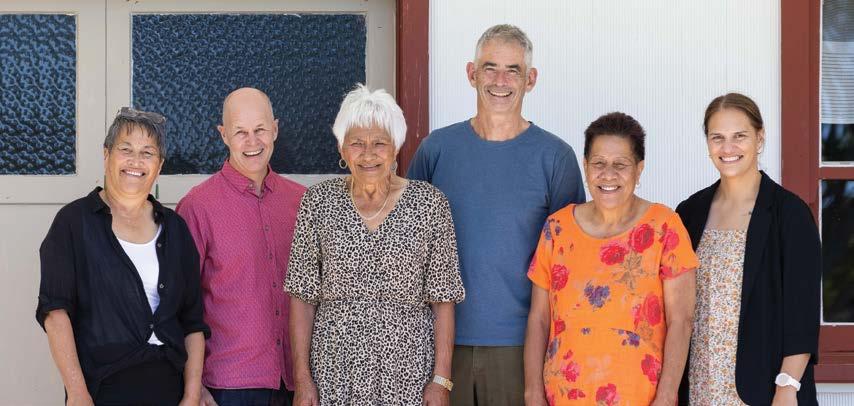
2023 PRIZES
In 2023, the Prime Minister’s Science Prize for transformative impact was won by the Hereditary Diffuse Gastric Cancer Team, led by Professor Parry Guilford FRSNZ, from Ōtākou Whakaihu Waka – University of Otago, in conjunction with Kimihauora Health and Research Clinic in Mount Maunganui.
This prize recognised the innovative partnership between members of the McLeod whānau, their community, cancer geneticists from the University of Otago, and clinicians from Tauranga Hospital. Together they identified a genetic mutation in the CDH1 gene which was causing members of the McLeod whānau to die from stomach cancer at a young age. The researchers developed a genetic test which gives
whānau members the ability to understand their risk of cancer and take life-saving action. Since then, the genetic test has enabled other families to discover whether they also have mutations in the CDH1 gene and saved many hundreds of lives in Aotearoa New Zealand and many thousands around the world.
Parry says it has been an “utter privilege” to have been part of this project for most of his working life.
“I think this type of research is way more likely to last… it will carry on because everyone owns the project, everyone feels part of the project, and we all go forward in the same direction.”
PROFESSOR
PARRY GUILFORD
L to R: Erin Gardiner; Dr Jeremy Rossaak, Pauline Harawira, Professor Parry Guilford; Maybelle McLeod, and Professor Karyn Paringatai
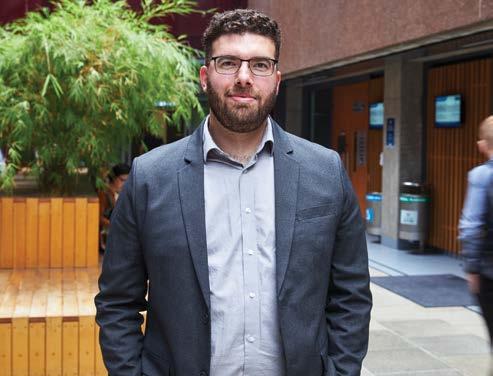
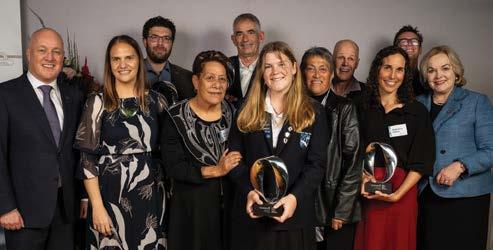
The Prime Minister’s MacDiarmid Emerging Scientist Prize was won by Dr Samuel Mehr, a Rutherford Discovery Fellow based at the School of Psychology at Waipapa Taumata Rau – University of Auckland. Samuel was recognised for his work on the cognitive science of how humans perceive and produce music, using cuttingedge tools and theories from disciplines as diverse as data science, evolutionary anthropology, psychology, linguistics, and music studies. One of the tools he developed is a large-scale citizen-science project called ‘The Music Lab’ where about a million participants are recruited each year to play online games that test their musicprocessing abilities.
“One
of the things that we can certainly conclude about our species is we are built in some way to make music...It’s a pervasive part of what it means to be human.”
DR SAMUEL MEHR

L to R: Rt Hon Christopher Luxon, Karyn Paringatai, Samuel Mehr, Maybelle McLeod, Parry Guilford, Sunny Perry, Erin Gardiner, Jeremy Rossaak, Madeleine Collins, Ben Kennedy, and Hon Judith Collins KC.
The Prime Minister’s Science Teacher Prize was won by Madeleine Collins, a chemistry and science teacher and associate head of the science faculty at Green Bay High School in Tāmaki Makaurau Auckland. Madeleine makes each student feel valued and provides opportunities for hands-on experiences to spark their innate curiosity. Incorporating Te Ao Māori values and mātauranga into her lessons is also really important to Madeleine. Outside the school, Madeleine has been a facilitator of the Callaghan Science Academy for the past 12 years, where she trains teachers to implement school-wide programmes for hands-on science. “I believe that science is enchanting, and exciting, and full of joy, and should provoke curiosity. It’s all about the world around us,” she said.
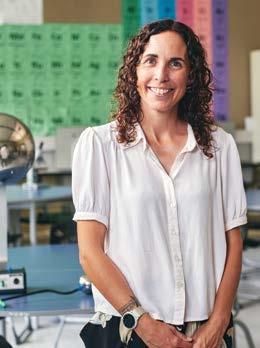
The Prime Minister’s Science Communication Prize was won by Professor Ben Kennedy from Te Whare Wānanga o Waitaha – University of Canterbury. Ben has always loved sharing his passion for volcanoes, especially with children. He runs VolcanoFest, an event that brings together volcano scientists, science communicators and the public. Following his experiences during the ‘media frenzy’ after the eruption of Whakaari White Island in 2019, he reevaluated his approach to science communication. He now seeks to communicate both the wonder and the risks of volcanoes in ways suited to the needs of communities and potential visitors, both in Aotearoa New Zealand and in Pacific Island countries.
The Prime Minister’s Future Scientist Prize went to Sunny Perry, from Kerikeri High School. Her research project tested and mapped the presence of highly corrosive soils in Northland. These soils are naturally rich in iron sulfides and can produce sulphuric acid. This acid can harm human health and affect fish, animals, and plants. The acids can also affect concrete and metal structures, resulting in costs and risks of failure. This risk has not been well studied in Aotearoa New Zealand. She took 480 samples from 20 sites across the Far North region and developed a map to help her predict sites which might have these soils – often former wetlands – and then updated the map with the soil-testing results.

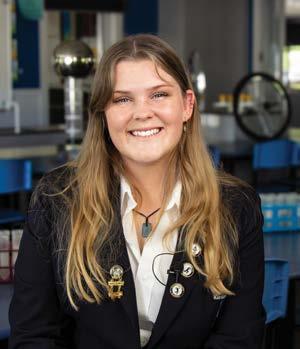
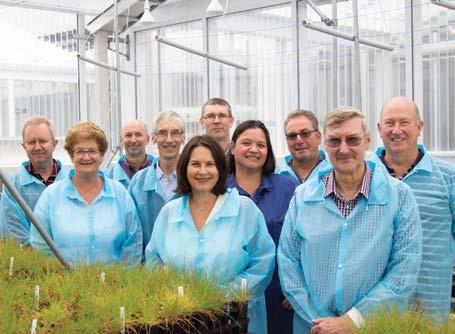
2024 PRIZES
The Prime Minister’s Science Prize was awarded to Dr Linda Johnson and the Endophyte Discovery Team at AgResearch for generating significant economic and environmental benefits by developing a microorganism which enhances the health and productivity of the ryegrass common on New Zealand farms.
In the 1980s, the team discovered ryegrass’s endophyte partner was causing health problems and a loss of productivity in grazing animals. They then identified a new endophyte, called AR37, that doesn’t cause these problems in livestock but continues to protect the pasture from insect pests. Eighty percent of farmers in Aotearoa New Zealand now buy seed with the improved endophyte, which is expected to add $3.6 billion to our economy in productivity gains over a 20-year period. The team are developing endophytes that will enhance resilience to climate change and other environmental challenges, not only in ryegrass, but in cereals and other crops.

The Prime Minister’s Emerging Scientist Prize for an outstanding early-career researcher was awarded to Dr Olivia Harrison, a Rutherford Discovery Fellow at Ōtākou Whakaihu Waka – University of Otago. Olivia has been recognised for her research on understanding and managing anxiety, which is disproportionately high in Aotearoa New Zealand and becoming more prevalent globally. Anxiety occurs when the brain misinterprets signals coming from the body or vice versa. Olivia uses breathing to study this miscommunication. Her multidisciplinary team studies treatments for anxiety, such as antidepressants and exercise. Olivia seeks to identify biomarkers for anxiety so that people can receive personalised treatment as part of a holistic approach to managing their anxiety.
L to R: Marty Faville, Christine Voisey, Stuart Card, David Hume, Linda Johnson, Wade Mace, Natasha Forester, Richard Johnson, John Caradus, and Wayne Simpson.

The winner of the Prime Minister’s Science Teacher Prize was Dr Aidan Kiely from Aorere College in Papatoetoe, South Auckland. A previous participant in the Society’s Science Teaching Leadership Programme, Aidan is focused on achieving equitable outcomes in science education. He seeks to provide authentic opportunities for his students to learn science, use it in their daily lives, and enter STEM careers. By using practical projects, such as ongoing restoration of a local stream, he involves his students in the real-world applications of science. To broaden his students’ learning opportunities, Aidan has established relationships with scientists, people in industry, and community members who can inspire and mentor his students.

Hon Dr Shane Reti, Olivia Harrison, Aidan Kiely, Linda Johnson, Rena Misra, Jemma Geoghegan, and Rt Hon Christopher Luxon.

The Prime Minister’s Science Communication Prize was awarded to Professor Jemma Geoghegan from Ōtākou Whakaihu Waka – University of Otago. Jemma was recognised for promoting public understanding of infectious disease and informing policymakers on how to respond to pandemic threats. Jemma’s research focuses on the evolution of viral diseases. In science communication, her talent is to match the complexity and context of the information she conveys to the needs of her various audiences. Jemma became a household name during the Covid-19 pandemic, and with her continuing outreach about other infectious diseases – such as bird flu – her total number of media and public appearances is now more than a thousand. She has sparked vital conversations between scientists from varying disciplines, politicians, and other decision-makers.
The Prime Minister’s Future Scientist Prize, for an innovative project by a secondary school student, was awarded to Rena Misra from Epsom Girls’ Grammar School. Rena’s project focused on phytoremediation, a process in which plants filter and remove contaminants in the environment. Rena sought a sustainable low-cost solution for reducing copper contamination in stormwater runoff, with potential applications in rural areas lacking stormwater treatment. Rena introduced fungi, which form a symbiotic relationship with plants and increase the surface area of their root systems. She demonstrated that plants inoculated with fungi grew more and absorbed more copper than non-inoculated plants, demonstrating their potential for removing pollutants from stormwater.
“I see my responsibility as a science communicator is to try to alleviate some of those anxieties that people might have. Because if you know more about it, then potentially you won’t be as scared.”

PROFESSOR JEMMA GEOGHEGAN

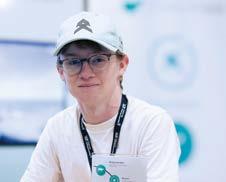

Prime Minister’s Space Prizes
The Government of New Zealand introduced the Prime Minister’s Space Prizes in 2024 to raise the profile of New Zealand’s growing space sector and recognise achievements and talent in the sector. The Society manages the process to award the Prizes, with funding from the Ministry of Business, Innovation and Employment. The inaugural winners were selected in 2024 and announced at Parliament at a ceremony on 17 December 2024.
The Prime Minister’s Space Prize for Professional Excellence was awarded to Robin McNeill MNZM, the founder and chief executive officer of Space Operations New Zealand Ltd (SpaceOps). Robin has designed and built ground stations in Antarctica, Tokelau, and Southland. He has played a critical role in deepening New Zealand’s relationship with the European Space Agency. This relationship has also included scholarships and other benefits for Southland students, such as the Kepler Space Camp for 70 local students. Through SpaceOps, Robin has been responsible for growing a pipeline of engineers and employees who have the necessary skills and experience to deliver future impact.
The Prime Minister’s Space Prize for Student Endeavour was awarded jointly to Cairo Akehurst , of Cashmere High School, and Tianyi Mathur, of Scots College.
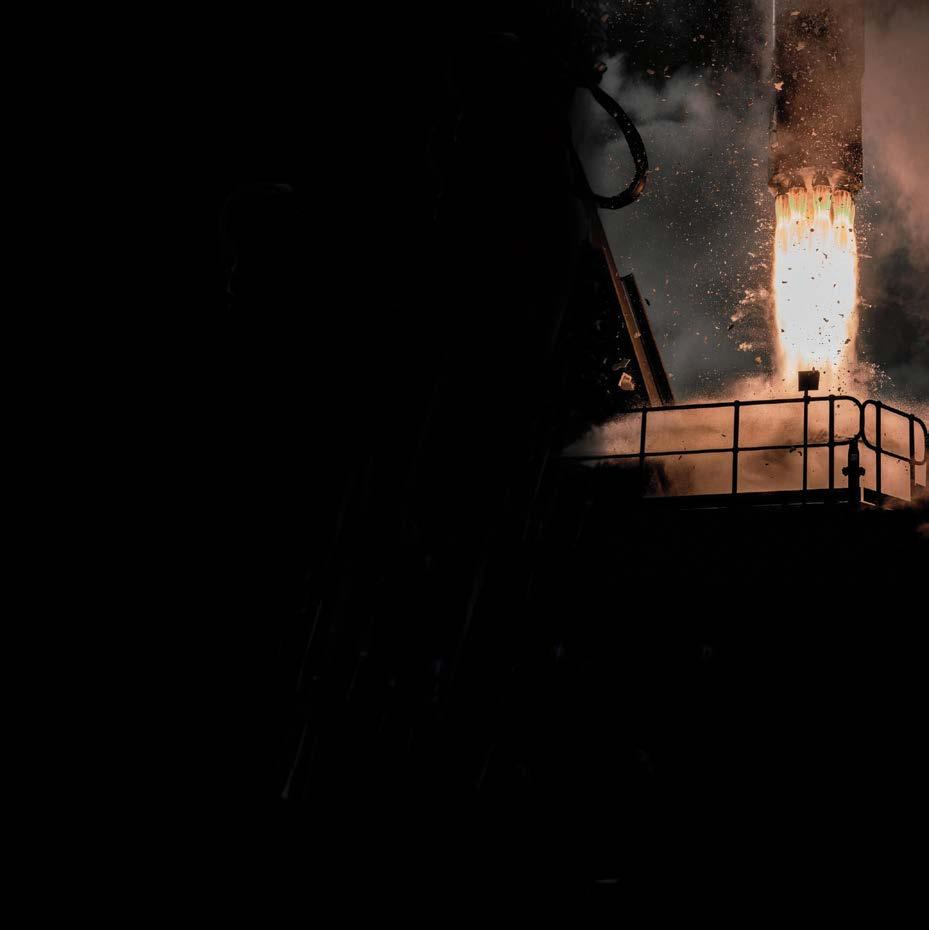
Cairo’s research project involved tracking methane emissions using satellite data. He developed an innovative approach to enhance the spatial resolution of the outputs from MethaneSAT by using data from oblique angles in combination with image stacking. This work will improve the usefulness of the results for end-users in the meat and dairy industries. Cairo has developed a commercially-viable product and a start-up business called Cattle Credit to scale up his idea for use on farms.
Tianyi’s research project focused on how cells communicate with each other to create organised patterns, developing a computer simulation to mimic the process of communication between cells. Practical applications for the space sector could include biosensors, autonomous systems, or new materials that could organise or repair themselves automatically, which could be vital in spacecraft or in extraterrestrial environments.
Top to bottom: Robin McNeill, Cairo Akehurst, and Tianyi Mathur
Research Honours Aotearoa 2024

EVERY YEAR THE SOCIETY RECOGNISES OUTSTANDING ACHIEVEMENTS AND CONTRIBUTIONS OF INNOVATORS, KAIRANGAHAU MĀORI, RESEARCHERS, AND SCHOLARS. FELLOWS OF THE SOCIETY’S ACADEMY ASSESS NOMINATIONS FOR OUR AWARDS AND MEDALS AND SELECT THE WINNERS.

In 2024, we hosted three regional events in November. Our partner, the Health Research Council of New Zealand, also presented two awards.
The Society would like to acknowledge the support of the Ministry of Business, Innovation and Employment, the Society's Endowment Fund, and the Marsden Fund Te Pūtea Rangahau a Marsden for continued support and sponsorship, and the research community for championing and contributing to Research Honours Aotearoa.
Professor Selina Tusitala-Marsh ONZM FRSNZ.

ŌTEPOTI DUNEDIN, 14 NOVEMBER
RESPECTFUL AND INCLUSIVE SCIENCE COMMUNICATION AND ENGAGEMENT
The Callaghan Medal for outstanding science communication was awarded to Professor Dianne Sika-Paotonu, Ōtākou Whakaihu Waka – University of Otago, Wellington, for her evidence-based communication and engagement efforts, particularly with Pacific communities. A biomedical scientist with expertise in immunology, Dianne has demonstrated effective evidence-based communication, adapting her content and style to what is most useful and important for each audience.
THE MATHEMATICS BEHIND EVOLUTIONARY TREES AND NETWORKS

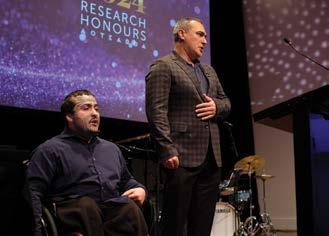

The Hector Medal for outstanding research in chemical, physical, mathematical, or information sciences was awarded to Distinguished Professor Charles Semple FRSNZ, Te Whare Wananga Waitaha – University of Canterbury, for ground-breaking mathematical research in phylogenetics and matroid theory. His contributions include mapping traits outside typical inheritance patterns and developing essential tools and techniques for matroid theory.
LEADING VOICE ON INTERNATIONAL RELATIONS
The Mason Durie Medal for advancing the frontier of social science has been awarded to Professor Natalia Chaban, Te Whare Wananga Waitaha – University of Canterbury, for her innovative research into perceptions in international relations and public diplomacy. Natalia’s research has focused on the cognitive and semiotic aspects of political and media discourses, public diplomacy and political communication within the European Union and internationally.

SPEAKING FOR THE TREES (AND OTHER BOTANICAL WONDERS)

The Leonard Cockayne Lecture Award, which commemorates the life and work of a great New Zealand botanist, was presented to Dr Peter Heenan, Manaaki Whenua – Landcare Research, recognising his decadeslong commitment to Aotearoa New Zealand's rich botany. Peter has shared his unrivalled knowledge of our flora with audiences across the motu and the world and has been director of the Allan Herbarium.
PIONEERING UNDERSTANDING OF PHASE TRANSITIONS IN DISORDERED SYSTEMS
The Hatherton Award for the best paper in physical, earth, mathematics, or information sciences by a PhD student was given to Dr Ehsan Arabahmadi, Ōtākou Whakaihu Waka – University of Otago, for his paper on phase transition in disordered systems. It addresses crucial questions and identifies theoretical and experimental techniques to investigate them.

Kiringāua and Komene Cassidy.
TĀMAKI MAKAURAU AUCKLAND, 20
NOVEMBER
SOLVING PROBLEMS THAT HAVE BAFFLED GENERATIONS OF MATHEMATICIANS

The Jones Medal for lifetime achievement in pure or applied mathematics or statistics was awarded to Distinguished Professor Gaven Martin FRSNZ, Te Kunenga ki Pūrehuroa – Massey University, for his ground-breaking work in a broad range of fields including geometry, analysis, topology, and group theory. Gaven is widely regarded as the best mathematician in New Zealand and a leading researcher internationally.
SERVING COMMUNITIES AND PROTECTING ECOSYSTEMS
Te Puāwaitanga Research Excellence Award for eminent and distinctive contributions to Te Ao Māori, and to Māori and Indigenous knowledge was awarded to Associate Professor Daniel Hikuroa (Ngāti Maniapoto, Waikato-Tainui, Ngaati Whanaunga), Waipapa Taumata Rau – University of Auckland. Dan was recognised for his work interweaving Indigenous knowledges with Western science and seeking to restore healthy ecosystems for communities.


TUNING INTO SPACE RESEARCH THROUGH RADIO ASTRONOMY

The Thomson Medal for outstanding contributions to the organisation, support, and application of science and technology was awarded to Professor Sergei Gulyaev for his leadership and contributions to research and teaching in radio astronomy, earth science, and space science. Sergei founded the Institute of Radio Astronomy and Space Research at Te Wānanga Aronui o Tāmaki Makau Rau –Auckland University of Technology and the Warkworth Radio Astronomy Observatory.
ADAPTING CROPS TO A CHANGING CLIMATE

The Hutton Medal for outstanding research in the earth, plant, or animal sciences was awarded to Professor Andrew Allan FRSNZ, Plant & Food Research and Waipapa Taumata Rau – University of Auckland, for his research in plant genomics and breeding. Andrew has characterised genes which are now used as markers to improve the efficiency of breeding in the horticultural industry.
FINDING TREATMENTS FOR DEVASTATING BRAIN DISEASES
The Hercus Medal for excellence in molecular and cellular biology, biomedical technology, clinical science, or public health was awarded to Professor Michael Dragunow FRSNZ, Waipapa Taumata Rau – University of Auckland, for his world-leading research on the causes and treatments of disorders of the brain. Mike established a biobank for brain tissues, and has made major contributions to our understanding of brain pharmacology and to development of drugs for brain disorders.

UNDERSTANDING RELIGIOUS FUNDAMENTALISM IN JAPAN

The Pou Aronui Award for distinguished service and sustained contributions to humanities research has been awarded to Professor Mark Mullins, Waipapa Taumata Rau – University of Auckland, for a career of scholarship on religion and politics in Japan, and on the role of religious nationalism in modern Japanese society. His decades of work and service have positioned Aotearoa New Zealand at the forefront of global thinking on the sociology of religion.
CREATING AUDIO PORTRAITS OF WĀHINE MĀORI

Te Kōpūnui Māori Research Award for an early-career researcher with a promising trajectory who is delivering innovative Māori research was given to Dr Maree Sheehan (Ngāti Maniapoto-Waikato, Ngāti Tuwharetoa, Ngāti Tahu-Ngāti Whāoa), Te Wānanga o Aotearoa, for her scholarship, involving audio portraiture focused on Māori women and sonic practices that honour and elevate the voices and identities of wāhine Māori.

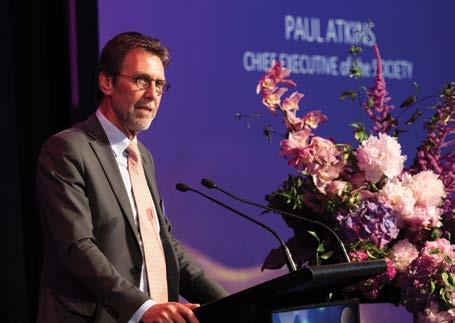
DIAGNOSING ELUSIVE GUT PROBLEMS WITH MED-TECH

The Cooper Award for earlycareer research excellence in technology, applied sciences, or engineering was given to Dr Timothy AngeliGordon, Te Wānanga o Aotearoa, for investigating the electrical and cellular mechanisms which cause chronic gastrointestinal disease and using bioengineering techniques to diagnose and treat patients with gut problems. His team has developed a new medical device to diagnose stomach complaints without invasive surgery.
USING DATA IN A NEW WAY TO UNDERSTAND MĀORI WELLBEING
The Early Career Research Excellence Award for Social Sciences went to Associate Professor Lara Greaves (Ngāpuhi), Te Herenga Waka – Victoria University of Wellington, Waipapa Taumata Rau University of Auckland, and Demos and Data Ltd, for interrogating large datasets to explore the complex relationships between Māori identity, social wellbeing and health using both quantitative and qualitative methods.


OUR HIGHEST HONOUR Rutherford Medal
REVOLUTIONISING THE TREATMENT OF ASTHMA WORLDWIDE
The Rutherford Medal, presented for an exceptional contribution to the advancement and promotion of knowledge for the benefit of New Zealand society, was awarded to Professor Richard Beasley CNZM FRACP FRCP FRSNZ for revolutionising the treatment of asthma worldwide.
Over a research career spanning 41 years, Richard has challenged dogma to transform asthma management in New Zealand and worldwide. As a clinician researcher he identified that an asthma medicine was the cause of an epidemic of asthma-related deaths in New Zealand. Restricting access to this drug reduced asthma deaths by two-thirds within a year. Extending this work, his paradigm-shifting advances in asthma management included establishing evidence for a single two-in-one inhaler that delivers a reliever and preventer in one. Now increasingly prescribed in New Zealand, this two-in-one inhaler has reduced hospital admissions for asthma by 25 percent – with the largest reduction for Māori, addressing a long-standing health inequity.
Through founding and directing the Medical Research Institute of New Zealand, Richard has proved that investigator-initiated research in New Zealand can change clinical practice and reduce morbidity and mortality worldwide.
TE WHANGANUI-A-TARA
WELLINGTON, 28 NOVEMBER
NOVEL FOOD INGREDIENT TO ALLEVIATE IRON DEFICIENCY

The Pickering Medal recognising excellence and innovation in the practical applications of technology was awarded to Distinguished Professor Harjinder Singh FRSNZ, of the Riddet Institute at Te Kunenga Ki Pūrehuroa – Massey University, for pioneering research and development. Harjinder created an encapsulated iron-protein complex that has been patented for widespread use as a food ingredient that can combat iron deficiency. His lab has developed several other innovative food technologies that have bridged the gap between scientific discovery and commercial applications.
DECADES OF DEDICATION TO HOUSING RESEARCH AND DEVELOPMENT
The Metge Medal for a social scientist who has shown excellence not only in their research, but also in creating opportunities for others in the field, was awarded to Dr Kay Saville-Smith, of the Centre for Research, Evaluation and Social Assessment, Kay was acknowledged for three decades of work to understand the housing needs and challenges faced by seniors, Māori, new settlers, Pacific peoples, and young and disabled people. Kay has also championed the right for people to access the results of research about themselves and the factors that shape their lives.

REVEALING IDENTITIES THROUGH CLOTHING
The Humanities Aronui Medal for research or innovative work of outstanding merit in the humanities went to Professor Vicki Karaminas, Te Kunenga Ki Pūrehuroa – Massey University, for advancing the discipline of fashion studies and for significant contributions to global understanding of masculinities, gender, and sexualities. Vicki has worked tirelessly to establish the discipline of fashion studies as a serious area of intellectual inquiry.
A 45-MILLION-YEAR ANTARCTIC RECORD TO UNDERSTAND FUTURE CLIMATE CHANGE


The Hamilton Award for early-career research excellence in science was awarded to Dr Bella Duncan, Te Herenga Waka –Victoria University of Wellington, for investigating how ocean temperatures in Antarctica have changed over 45 million years, including the historical temperature thresholds for ice sheet retreat. Her results suggest a substantial melting of the ice sheet for the coming century.
DECOLONISING THE CHILD PROTECTION SYSTEM

The Early Career Research Excellence Award for Humanities was given to Dr Luke Fitzmaurice-Brown (Te Aupōuri), of Te Herenga Waka –Victoria University of Wellington, for his work on the child-protection system in Aotearoa New Zealand. He developed a roadmap to legislative reform of child protection, with six principles based on tikanga Māori.


HEALTH RESEARCH COUNCIL AWARDS
TEAM HONOURED FOR INFLUENCING PRACTICES FOR GLOBAL FERTILITY AND GYNAECOLOGY

The Health Research Council of New Zealand awarded the Beaven Medal for excellence in translational health research to Professor Cynthia Farquhar CNZM FRSNZ and her team at Waipapa Taumata Rau – University of Auckland. This team’s clinical trials of gynaecology and fertility treatments have changed how women and couples with unexplained infertility are treated world-wide and led to less invasive treatments and better health outcomes for women and their families.
MARAE-BASED RESEARCHER RECEIVES MEDAL FOR TRANSFORMATIVE WORK IN MĀORI COMMUNITIES


The Health Research Council of New Zealand awarded the Te Tohu Rapuora Medal for leadership, excellence, and contributions to advancing Māori health to Cheryl Davies (Ngāti Raukawa, Ngāti Mutunga ki Te Wharekauri) from Tu Kotahi Māori Asthma and Research Trust. Cheryl is a community champion, who started out by providing asthma education and advocacy services to whānau in the wider Wellington region and soon branched out into health research.


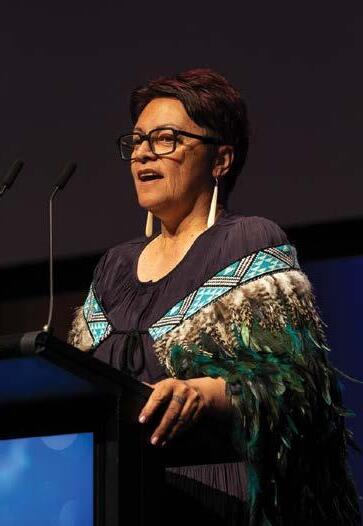
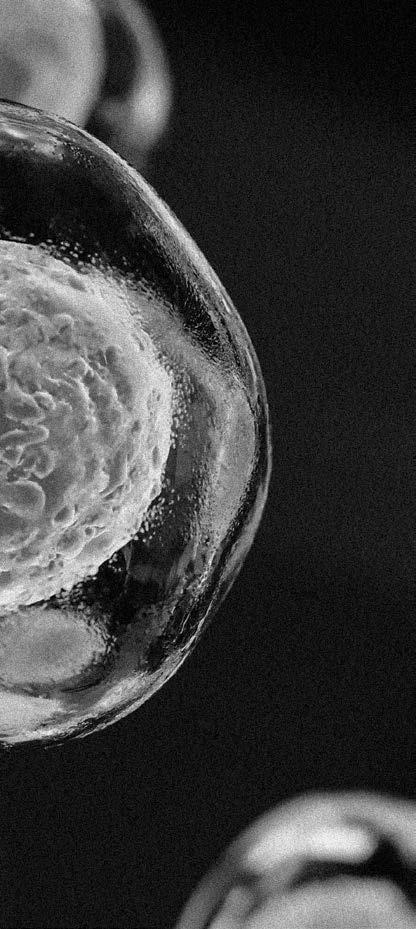
Influence and impact 02
MPs presented with latest in science and technology
Our monthly Parliamentary Science Forum series (formerly the Speaker’s Science Forum) gave Members of Parliament the opportunity to hear presentations on research areas of importance to Aotearoa New Zealand. The series is hosted by the Chair of the Economic Development, Science and Innovation Select Committee and given patronage by the Speaker of the House. Topics during this period were selected in collaboration with the Society’s partners Science New Zealand, Universities New Zealand, and the Independent Research Association of New Zealand.
2024 TOPICS
ARTIFICIAL INTELLIGENCE – FRIEND OR FOE?
Professor Alistair Knott discussed what it would take to keep AI safe. Professor Richard Green presented an array of AI applications in conservation and agriculture.
TECHNOLOGY FOR BETTER FARMING, FOOD, AND NUTRITION
Dr Scott Knowles discussed precision fermentation. Professor Bruce MacDonald talked about automation and robotics in horticulture.
TRANSFORMING HEALTHCARE WITH BIG DATA
Professor Gill Dobbie FRSNZ talked about improving our healthcare with data and AI.
Professor Paul Young CNZM FRACP FRCP FRSNZ described positive outcomes resulting from his clinical trials on intensive care.


MATARIKI: STARS OF MĀORI INNOVATION
Katerina Pihera-Ridge (Ngāti Rangiwewehi, Ngāti Whakaue, Ngā Puhi) shared insights on traditional knowledge about ngahere (forests). Dr Ratu Mataira (Ngāti Porou, Ngāti Kahungunu) spoke about Aotearoa’s potential to lead the world in fusion energy.
DISASTER-PROOFING NZ: EXTREME WEATHER RESILIENCE AND FORESTS FOR CARBON CAPTURE
Dr Graeme Smart described the need to prepare for flooding events in our changing climate. Dr Adam Barker spoke about the potential of carbon forestry to curb climate change in Aotearoa New Zealand.
BIOENGINEERING FOR BETTER HEALTH
Associate Professor Kelly Burrowes described how bioengineering can be used to understand how vaping affects our lungs. Dr Jan Powell showcased new “organ-ona-chip” technology as a viable alternative to animal testing.
THE FUTURE OF ENERGY IN AOTEAROA NEW ZEALAND
Professor Alan Brent gave an overview of how Aotearoa New Zealand can manage its transition to renewable energy. Dr Isabelle Chambefort told MPs how we can power the country using geothermal energy.
SPACE!
Professor Richard Easther described how countries collaborate to invest in tools to allow the study of space. Associate Professor Pauline Harris (Rongomaiwahine, Ngāti Kahungunu, Ngāti Rakaipaka) spoke about the burgeoning Māori aerospace industry.


Photo credit: OpenStar Technologies
2025 TOPICS (TO 30 JUNE)
GENE TECHNOLOGY: FOOD AND FARMING
Professor Andrew Allan FRSNZ told MPs about gene technology’s applications in horticulture and discussed public concerns about the technology. Dr Sara Edwards presented projects applying cutting-edge gene technology for livestock.
GENE TECHNOLOGY: HEALTHCARE
Dr Hilary Longhurst told MPs about upcoming applications of gene therapy to cure rare genetic diseases. Professor Kjesten Wiig talked about arming our immune cells to fight cancer.
OUR BLUE ECONOMY
MPs learnt about how aquaculture (fish farming) can feed our growing world. Dr Suzy Black spoke about farming fish in mobile enclosures. Dr Patrick Cahill spoke about aquaculture techniques for shellfish and seaweeds.
ENERGY TRANSITION IN AOTEAROA NEW ZEALAND
Dr John Kennedy FRSNZ spoke about the role of green hydrogen. Professor Justin Hodgkiss FRSNZ spoke about the next generation of solar photovoltaic technology.
EMERGING ISSUES IN HEALTH
Dr Angela Baschieri shared sobering predictions about the health impacts of worsening climate change. Dr Josh McGeown told MPs about using MRI to diagnose brain damage from rugby injuries.




“We hope these guidelines give researchers the confidence to use generative AI in ethically appropriate ways. This includes recognising that, when using generative AI in te reo Māori, principles of Māori data sovereignty must be upheld.”
ASSOCIATE PROFESSOR TE TAKA KEEGAN
EXPERT ADVICE Guidelines for use of generative AI in research
In June 2025, the Society launched bestpractice guidelines for using generative artificial intelligence (GenAI) in research in Aotearoa New Zealand.
The guidelines are for all New Zealand researchers who use – or are thinking of using – GenAI tools in their research. It is expected that individuals and organisations will tailor these guidelines for their own purposes and contexts.
The guidelines were developed in collaboration with an expert advisory group.

“Our aim is for researchers in Aotearoa New Zealand to draw on these guidelines to help navigate a rapidly evolving landscape, enabling them to leverage the innovation and evident benefits that generative artificial intelligence offers, while at the same time being aware of risks and the need to ensure GenAI is used ethically with humans in control.”
PROFESSOR ALI KNOTT
Freedom and responsibility in science
The International Science Council (ISC) works at the global level to catalyse and convene scientific expertise, advice, and influence on issues of major concern to both science and society, and to advance the role of science as a global public good. These goals are underpinned by a priority commitment to the free and responsible practice of science, which the ISC holds as fundamental to scientific advancement and to the peaceful and sustainable development of humankind.


The Society plays a significant part in the ISC’s work to uphold and promote the principles of freedom and responsibility in science by hosting the Special Advisor to the ISC’s Committee for Freedom and Responsibility in Science. Throughout 2024, the Special Advisor contributed to major international events designed to raise awareness of declining scientific freedoms and mobilise efforts to reverse this trend.
The Special Advisor to the Committee chaired a session on the urgency of translating science into policy at a conference on ‘Planetary Justice and Societal Responsibility in International Sustainability Sciences and Scientific Cooperation’, hosted by the Leibniz Centre for Tropical Marine Research in March 2024.

The Committee for Freedom and Responsibility in Science co-facilitated a workshop hosted by the SOCRATES Centre of Philosophy of Science at Leibniz University in Hanover, Germany in June 2024, which explored how the global scientific community can and should enable diverse knowledge systems.
The Committee led the ISC’s advocacy for equity, inclusivity, integrity, and freedom in science, and the role of states in enabling these, by speaking out in support of the scientists and science systems under threat in Iran, Sudan, Palestine, Ukraine, and Argentina, and by releasing position pieces on academic boycotts and protests at university campuses.

Science as a human right
The Committee for Freedom and Responsibility in Science also produced the ISC’s new interpretation of ‘the right to participate in and benefit from science’, which clarifies how these ‘rights to science’ apply to both the practice of science and the use of scientific knowledge, and emphasises states’ obligations to ensure the effective exercise of these rights.
The ISC’s interpretation is accompanied by a downloadable poster, a detailed explanatory guide, and an ongoing series of blogs by invited experts, including the UN Special Rapporteur for cultural rights. The blogs explore and analyse this work in the context of existing international human rights instruments and globally declining adherence to their provisions.
Associate Professor Krushil Watene (Ngāti Manu, Te Hikutu, Ngāti Whātua o Orākei), of Waipapa Taumata Rau –University of Auckland, was a member of the Committee for Freedom and Responsibility in Science until March 2025 and was closely involved in developing the ISC’s interpretation, particularly in ensuring that Indigenous knowledge systems and perspectives on science were central considerations from the beginning of the project. The Special Advisor was also an important contributor.

EXPERT ADVICE Factsheet: Alcohol causes cancer
In October 2024, the Society published a factsheet on the topic: 'Ka Hua Mai Te Mate Pukupuku I Te Inu Waipiro – Alcohol Causes Cancer'. It compiled the evidence for an association between alcohol and cancer in Aotearoa New Zealand and called for greater awareness and action to address the issue.
This expert advice outlined how alcohol causes cancer, and which types (cancer of the mouth and throat, breast cancer (female), liver cancer, and bowel cancer) and highlighted increased cancer risk from moderate drinking. It outlined the low awareness amongst New Zealanders that alcohol causes cancer, describes how Māori face a higher burden from alcohol, and suggested evidencebased solutions that health authorities and the Government could take to reduce the cancer harm from alcohol in Aotearoa.
Alongside the factsheet, the Society ran a social media campaign to raise awareness about alcohol causing cancer.
ONLY ONE IN FIVE NEW ZEALANDERS KNOW THAT DRINKING ALCOHOL CAUSES CANCER.

“Alcohol causes cancer through several mechanisms. Alcohol and its breakdown products can cause mutations. It can also aid other carcinogens accessing our cells and can disrupt hormones. In addition, alcohol can increase the chance of metastasis, the spreading of cancer to other parts of the body.”
EMERITUS PROFESSOR JENNIE CONNOR
Graphic representation: throat cancer

SCIENCE MEDIA CENTRE Science Journalism Awards
THE SCIENCE MEDIA CENTRE LAUNCHED A NEW INITIATIVE IN 2024 TO CELEBRATE EXCELLENT REPORTING ON SCIENCE-RELATED TOPICS.
The inaugural Science Journalism Award in the Established Journalist category went to freelance journalist Sasha Borissenko’s “Going Under the Knife”, episode five of her ten-part podcast series, Chewing the Facts, produced with support from NZME and NZ On Air.
The Spinoff journalist Shanti Mathias won the Emerging Journalist prize for her piece “Staring down the ‘silent epidemic’ of myopia in children”.
In 2025, Kate Newton of RNZ won the Established Journalist category for her In Depth article on the artificial narrowing of the Ngaruroro River channel and its impacts, “Room for the river”, with designer Hingyi Khong
Shanti Mathias (L) and Sasha Borkissenko (R), holding 2024 tardigrade trophies designed and sculpted by artist Annaliese Rosa.

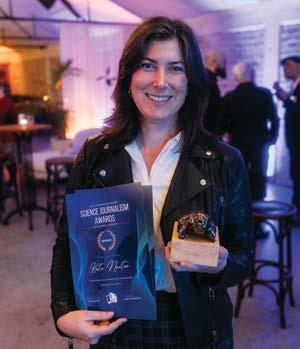
Fox Meyer of Newsroom won the Emerging Journalist award for “Inevitable solar storms will be catastrophic for energy supply”.
New Zealand Science Media Director Dacia Herbulock said the awards were created in an effort to recognise excellent science journalism in what’s been a challenging few years for the field. “We were overwhelmed with exceptionally high-quality entries for these awards. The depth of talent and originality on display is inspiring”, she said.

Dacia Herbulock (L) and Kate Newton (R) holding a 2025 tardigrade trophy designed and sculpted by artist Rebeka Whale.
L to R: 2025 winners Alakihihifo Vailala, Kate Newton, Kate Evans, Michelle Duff, Fox Meyer, and Janhavi Gosavi.
Expert reactions to breaking news SCIENCE MEDIA CENTRE

The good news, argued Nick Ling, University of Waikato, in comments via the Science Media Centre, is that the fuel onboard the Manawanui is lighter and potentially less damaging than the crude oil that leaked out of the Rena.
THE SCIENCE MEDIA CENTRE PUBLISHES EXPERT REACTIONS TO PROMOTE ACCURATE, EVIDENCEBASED REPORTING ON BREAKING STORIES AND ONGOING ISSUES BY HELPING THE MEDIA WORK MORE CLOSELY WITH THE RESEARCH COMMUNITY.
When the New Zealand naval vessel HMNZS Manawanui sank off the coast of Samoa on 6 October 2024, the Science Media Centre released video of the reaction from a researcher who had monitored long term environmental impacts from the Rena grounding and oil spill. Updates added further context from experts in strategic studies with naval experience.
Journalists relied on expert analysis sourced from the Science Media Centre to cover this rapidly evolving news story, with limited sources of official information. Nearly 70 media items appeared on broadcast and online media across New Zealand and the Pacific.
REPORTING BY STEWART SOWMANLUND, THE SPINOFF
INSPIRING TALKS AND ENGAGEMENT Reasons for hope
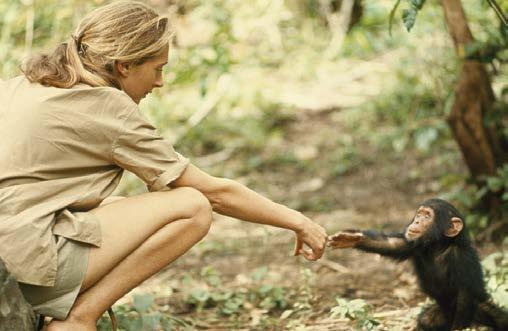
Famed for her research on chimpanzee behaviour, worldrenowned conservationist Dr Jane Goodall DBE visited Wellington on her ‘Reasons For Hope’ tour on 13 June 2024. She met with Their Excellencies The Right Honourable Dame Cindy Kiro GNZM QSO Governor-General of New Zealand and her husband Dr Richard Davies at a private event.
At an invitation-only talk in Parliament’s Grand Hall, Jane shared her reasons for hope in conversation with Nicola Toki, CEO of Forest & Bird. They discussed her research, her work as a United Nations Messenger of Peace, and as the Founder of the Jane Goodall Institute and its ‘Roots & Shoots’ youtheducation programme, which reaches millions of young people in more than 60 countries.
Jane was also here to support the work of the Jane Goodall Institute New Zealand, which was set up in 2017 with a vision for a healthy planet where people make compassionate choices to live sustainably and in harmony.
The Society collaborated to support this event with the British Council New Zealand and the Pacific, British New Zealand Business Association, Forest & Bird, Tonkin + Taylor, and DLA Piper.
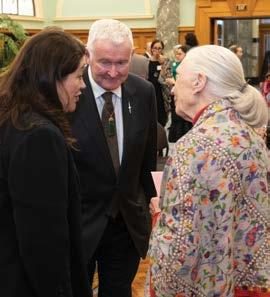

Image: Jane Goodall Institute of Australia

Whānau-led research
HOW FINDING A GENETIC CAUSE FOR STOMACH CANCER IN A WHĀNAU NOW SAVES THOUSANDS OF LIVES
Professor Parry Guilford FRSNZ and Professor Karyn Paringatai (Ngāti Porou) from Ōtākou Whakaihu Waka –University of Otago spoke in Manawatū, Timaru, Christchurch, Napier, Dunedin, and Wellington, at informal interviewstyle events, about the project that won the Prime Minister’s Science Prize.
Through a 30-year partnership between the McLeod whānau, cancer geneticists, and clinicians from Tauranga Hospital, they successfully identified the genetic mutation that was causing members of the whānau to die early from stomach cancer. The interview covered the beginnings of the project, the potential of future treatments being developed, and research supported by the Marsden Fund on the experiences of whānau Māori, such as having the faulty gene and learning to live without a stomach.

Shoot for the stars
Many people will have heard Dr Michelle Thaller talking on live NASA broadcasts, such as the launch of the James Webb Space Telescope, and in regular media appearances. Until recently, she was a scientist in NASA’s famous Jet Propulsion Laboratory, which has launched missions to every planet in our solar system, including the Voyager probes, Mars rovers, and the Cassini mission. She holds NASA's highest honour, the NASA Exceptional Achievement Medal, for her contributions to the agency.
In June 2025, Michelle was the keynote speaker at the New Zealand International Science Festival in Ōtepoti Dunedin. She was brought to New Zealand by the US Embassy, and the Society supported her tour to rapt audiences including school groups in Tāmaki Makaurau Auckland and Te Whanganui-a-Tara Wellington.

From dinosaurs to birds
PROFESSOR JULIA CLARKE GAVE A SERIES OF FASCINATING TALKS TO SCHOOL GROUPS AND THE PUBLIC IN MAY 2025. THE PALAEONTOLOGIST FROM THE UNIVERSITY OF TEXAS, AUSTIN, IS WORLD-FAMOUS FOR HER DISCOVERIES ABOUT DINOSAURS, ANCIENT SPECIES OF BIRDS, AND HOW OUR MODERN BIRDS EVOLVED.
Julia has made breakthroughs in our understanding of how dinosaurs looked and how they sounded. This includes proving that some dinosaurs had brightly coloured feathers, and finding the first fossil of a voice box from a dinosaur and using it to work out what noises they made.
She has led expeditions all over the world to study fossils and birds, including Rēkohu Chatham Islands and Antarctica. She has learned a lot about penguins and their ancestors, including discovering a species of giant penguin that are now extinct.
This event was supported by the United States Mission in New Zealand.

Te Tapeke Fair Futures
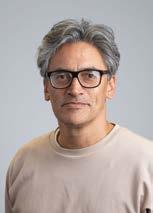


The Society convened a panel of experts to develop advice on equity, equality, and fairness. In 2020 and 2021, they published a series of written reports on what needs to change for a fair, just, and equitable future for Aotearoa New Zealand.
Experts from the panel met in two public events to share their expertise and ideas.
On 23 July 2024, at the Auckland Museum Tāmaki Paenga Hira, Associate Professor Sereana Naepi facilitated a discussion between Associate Professor Andrew Erueti (Ngāti Ruanui, Ngāruahinerangi), Associate Professor Krushil Watene (Ngāti Manu, Te Hikutu, Ngāti Whātua o Orākei), and Associate Professor Barry Milne
On 29 October 2024, at Te Whare Apārangi in Wellington, Associate Professor Andrew Erueti led a discussion with Distinguished Professor Philippa Howden-Chapman CNZM QSO FRSNZ, Emeritus Professor Jonathan Boston ONZM, and Dr Alan Bollard CNZM FRSNZ.
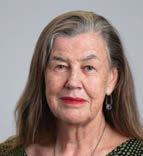

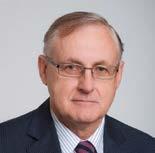
The panellists discussed issues of fairness in the context of the uncertainties, challenges, and complexities facing society. They asked us to be more courageous about where we think transformations could come from, and to keep engaging in constructive dialogue for the benefit of all people in our society.
L to R: Andrew Erueti, Krushil Watene, and Barry Milne.
L to R: Philippa Howden-Chapman, Jonathan Boston, and Alan Bollard.
VIDEO FEATURE Aurora Australis
The night skies in 2024 and 2025 have been especially active, with the Aurora Australis, otherwise known as the Southern Lights, being seen across the nation.
The sun has been at what astronomers call a “solar maximum” in its 11-year cycle. Auroras happen when charged particles from solar wind enter Earth's magnetic field at the poles. They collide with gases in the atmosphere (mainly oxygen and nitrogen), exciting these molecules and emit light that we see as the aurora.
To make the most of forecast heightened activity, we reached out to Dr Ian Griffin CRSNZ, to film an instructional video about how to photograph the aurora. We also used this opportunity to film a second video about the importance of science communication to promote the Prime Minister’s Science Prizes.
In the instructional video, Ian gives tips on how to discover if an aurora is forecast, find the best spots to observe it, and set up your phone or camera.
The video gains thousands of views online each time an aurora is forecast.

WATCH THE VIDEO Bit.ly/2024HL-62
Photo credit: Grace Prior
CELEBRATING BOOKS AND WRITING
Auckland Writers Festival 2024
The Society and the Marsden Fund supported critical thought and the written word at the Auckland Writers Festival, partnering with the Faculty of Arts at Waipapa Taumata Rau – University of Auckland.
At the Ockham New Zealand Book Awards, held the day before the Festival, former Society Councillor, Professor Damon Salesa FRSNZ won the General Non-Fiction Award for his work, An Indigenous Ocean: Pacific Essays. Esteemed academic, Tā Pou Temara KNZM CRSNZ (Ngāi Tūhoe) was presented with the 2024 Te Mūrau o te Tuhi Māori Language Award for Te Rautakitahi O Tūhoe ki Ōrākau
We supported three sessions to raise the profile of science and research on the main programme, which attracts more than 85,000 visitors in May each year.
• 'How To Survive Te Ara ki te Ora' with authors Airana Ngarewa (Ngāti Ruanui, Ngā Rauru, Ngāruahine), Nicola Toki, and Rob Mokaraka (Ngāpuhi, Ngāi Tūhoe) in conversation with Dr Emma Espiner (Ngāti Tukorehe, Ngāti Porou).
WORD CHRISTCHURCH 2024
The Society also promoted books at the WORD Christchurch Festival in October, which draws more than 13,000 people annually.
• Emeritus Professor Ngāhuia te Awekōtuku CRSNZ (Te Arawa, Tūhoe, Ngāpuhi, Waikato) talked about her book Hine Toa: A Story of Bravery with author Dr Tina Makereti (Te Ātiawa, Ngāti Tūwharetoa, Ngāti Rangatahi-Matakore).
• Associate Professor Jen Martin talked about her book Why Am I Like This? The Science Behind Your Weirdest Thoughts and Habits, with Tracy Farr.

• 'The Science of Science Fiction' with actress Jess Hong from 3 Body Problem and author Dr Octavia Cade in conversation with Professor Geoff Willmott
• US physician and author Dr Abraham Verghese, talking about his book The Philosophy of Care with local expert Professor Waikaremoana Waitoki (Ngāti Hako and Ngāti Māhanga), facilitated by Hineatua Parkinson (Ngāti Patuwai, Whakatōhea, Ngāti Hine).

L to R: Octavia Cade, Jess Hong, and Geoff Willmott.
Ngāhuia te Awekōtuku
Auckland Writers Festival 2025

Dame Anne Salmond ONZ DBE FRSNZ was recognised as 2024 Honoured Writer for the Festival. She shared insights on 50 years of navigating te ao hurihuri in a fascinating career-spanning conversation with Professor Te Kawehau Hoskins (Ngāpuhi).
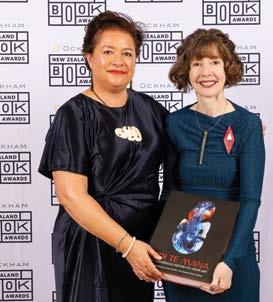
Professor Deidre Brown FRSNZ (Ngāpuhi, Ngāti Kahu), Professor Ngarino Ellis (Ngāpuhi, Ngāti Porou), and the late Professor Jonathan Mane-Wheoki (Ngāpuhi, Te Aupōuri, Ngāti Kurī) won the ‘Bookhub Award for Illustrated NonFiction’ at the Ockham New Zealand Book Awards for Toi Te Mana: An Indigenous History of Māori Art. This work was supported by the Marsden Fund. Professor Ngāhuia te Awekōtuku took out the ‘General Non-Fiction Award’ for Hine Toa, and delighted audiences with her Gala Night performance.
The Society supported 20 tauira (students) from Auckland Girls’ Grammar to attend two sessions at the Festival. We also promoted the talks for three books.
• Becoming Aotearoa: A New History of New Zealand, by Professor Emeritus Michael Belgrave, interviewed by historian Dr Ross Calman (Ngāti Toa, Ngāti Raukawa, Ngāi Tahu).

• Books of Mana, by Distinguished Professor Jacinta Ruru FRSNZ (Raukawa, Ngāti Ranginui), Professor Angela Wanhalla (Kāi Tahu, Kāti Māmoe), and Dr Jeanette Wikaira (Ngāti Pukenga, Ngāti Tamaterā, Ngāpuhi), in conversation with Miriama Kamo (Ngāi Tahu, Ngāti Mutunga).
• Orbital, 2025 winner of the Booker Prize, by Samantha Harvey, with author Kate De Goldi

180 MĀORIAUTHORED BOOKS OF SIGNIFICANCE
Books of Mana is a beautifully illustrated collection of essays on 180 Māori-authored non-fiction books published since 1815. The work is an extension of Te Takarangi, an initial list of 150 books created by the editors Jacinta Ruru, Angela Wanhalla, and Jeanette Wikaira, in partnership with Ngā Pae o te Māramatanga. The list is hosted on the Society's website.
Books of Mana reveals how Māori thinkers and writers have influenced the growth and development of Aotearoa New Zealand. What emerges from the collected essays is a profound sense that these books, and the knowledge they contain, are taonga.
The Society ran a social media campaign in January 2025 to raise awareness of this important publication, from University of Otago Press.


L to R: Elizabeth Ellis, Ngarino Ellis, Deidre Brown, Ngāhuia te Awekōtuku, Jacinta Ruru, Ross Calman, Angela Wanhalla, Nigel Borrell, Ariana Tikao, Linda Waimarie Nikora, and Jeanette Wikaira.
Te Kawehau Hoskins with Anne Salmond.


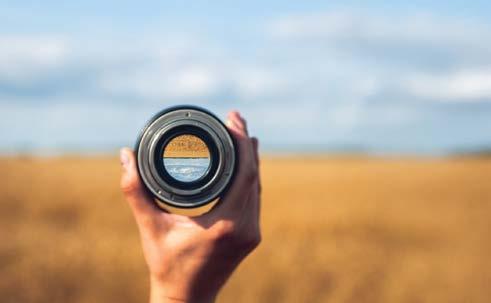
Expert perspectives
THE SOCIETY LAUNCHED A NEW INITIATIVE IN MAY 2025 TO SHARE SHORT OPINION PIECES FROM AUTHORITATIVE EXPERTS ON TOPICAL ISSUES. THE AIM OF THESE ‘EXPERT PERSPECTIVES’ IS TO STIMULATE CONSTRUCTIVE AND INFORMED DIALOGUE ON COMPLEX TOPICAL ISSUES ACROSS TRADITIONAL BOUNDARIES BETWEEN DISCIPLINES, INSTITUTIONS, GENERATIONS, SECTORS, AND CULTURES.

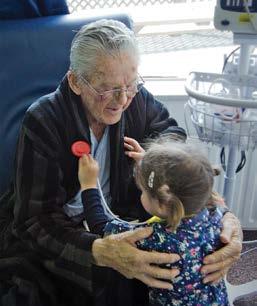
The first three topics were:
• How could global threats to science and research affect Aotearoa New Zealand, and how might we mitigate the impact?
• How could predicted demographic shifts, including age and ethnic identity, affect the future of Aotearoa New Zealand?
• Why and how should we accelerate efforts to achieve a "predator-free" Aotearoa New Zealand by 2050?
Thanks to all those who have contributed their expert perspectives on these questions.
READ MORE Bit.ly/2024HL-67

People and partnerships 03
Frontiers planet prize RETHINKING
THE FATE OF ATOLLS
The international Frontiers Planet Prize aims to incentivise scientists and researchers to find innovative solutions to the global environmental crisis. The Society is the representative body for the Prize in Aotearoa New Zealand and selects a national champion to attend the awards ceremony in Switzerland.
Dr Sebastian Steibl , Waipapa Taumata Rau – University of Auckland, was selected to represent Aotearoa New Zealand in this international competition in June 2025. His research calls for a rethink about the future of atolls in the context of climate change. It challenges the perception that the predicted rates of sea-level rise will inevitably prevent survival of atoll islands. Instead, he presents evidence that erosion on atoll islands can be reversed by protecting and restoring ecosystems that enable the natural geophysical process of accretion.

“The narrative of atoll futures within planetary boundary sciences is not one of inevitable loss but of adaptive capacity, sustained resilience, and empowered local stewardship.”
DR SEBASTIAN STEIBL
AOTEAROA
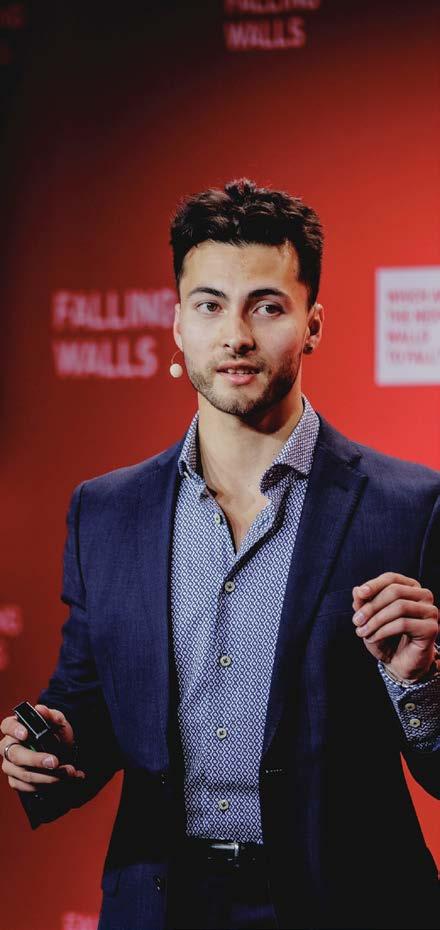
Falling Walls Lab Aotearoa
Falling Walls Lab is a world-class pitch competition and networking forum. It brings together a diverse and interdisciplinary pool of students and earlycareer professionals to present their ideas for innovative breakthroughs.
The Society hosts the regional event with presenters from around the motu and the Pacific, with the winner gaining the opportunity to compete at the Falling Walls Lab Global Finale in Berlin.
Joseph Balfe, from Pacific Edge Ltd / Ōtākou Whakaihu Waka – University of Otago, won the regional competition with his wearable smart-device that can detect asthma attacks as they happen, and automatically relieve them through nerve stimulation that opens the small airways. Joseph and Associate Professor Yusuf Cakmak co-invented the VentiMate, a non-invasive bronchodilator device designed to be worn between the shoulder blades. The device is showing promising results in early randomised controlled trials.
The event was hosted by the Society and supported by the German Embassy in Wellington and the Ministry of Business, Innovation and Employment.
EURAXESS Australia & New Zealand provided Joseph with mentoring and training in science communication ahead of his presentation in Berlin.


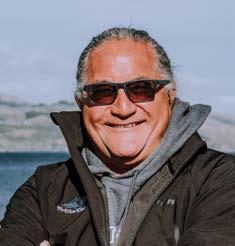
2024 Ngā Takahoa a Te Apārangi Companions
The Society elects Companions – Ngā Takahoa a Te Apārangi – to recognise outstanding leadership and sustained contributions to promoting and advancing science, technology, or the humanities in Aotearoa. During this period, we welcomed three new Companions.
Professor Jacky Bowring CRSNZ was elected for her innovative career and scholarship in landscape architecture. For four decades, Jacky has been bringing together scholarship, design practice, and design critique to connect knowledge and its application in the built environment. While the scope of her work in landscape architecture is broad, Jacky has found meaningful focus in the design of memorials.
Professor Paora John Tohiteururangi Tapsell CRSNZ (Ngāti Whakaue, Ngāti Raukawa) was elected for his farreaching innovation, commitment, and leadership within Māori communities. Focused on Indigenous issues,
heritage, and community development, his work synthesises social science and mātauranga research, addressing challenges such as heritage protection, water security, food sovereignty, and the impact of climate change on Indigenous peoples and ecosystems.
Hoturoa Barclay-Kerr CNZM CRSNZ (Tainui) has been elected for his outstanding leadership and service in revitalising the mātauranga and legacy of double-hulled ocean-voyaging waka hourua in Aotearoa and throughout Te Moana-nui-a-Kiwa. Hoturoa paddles waka, sails waka, and teaches waka. Hoturoa has built a national profile and gained international recognition as a passionate communicator for ocean voyaging.
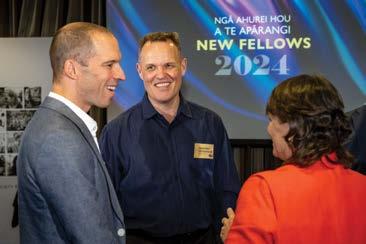
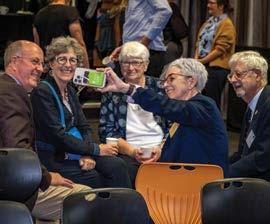

2024 Ngā Ahurei Fellows
THE ACADEMY OF THE ROYAL SOCIETY TE APĀRANGI WAS ESTABLISHED IN 1919 TO RECOGNISE SCHOLARS AND RESEARCHERS FOR DISTINCTION IN RESEARCH AND ADVANCEMENT OF SCIENCE, TECHNOLOGY, OR THE HUMANITIES. NEW FELLOWS AND HONORARY FELLOWS ARE ELECTED EACH YEAR TO ADD TO THE BASE OF EXPERTS WHOM THE SOCIETY CALLS UPON FOR ITS WORK.

The following Ngā Ahurei Fellows were elected in 2024 and recognised at an event in Wellington in April 2025.
Professor Rod Badcock FRSNZ
Te Herenga Waka –Victoria University of Wellington

Rod Badcock is an engineer known for his work on hightemperature superconductors, spanning fundamental to applied research and generating commercial impact. He has made significant contributions to the design of motors, generators, dynamos, and flux pumps for applications in space and aerospace and in generation and storage of clean energy. Rod’s inventions pave the way for all-electric aircraft, fusion energy, and optical fibre sensing in extreme environments.
Professor Richard Boast
ONZM KC FRSNZ
Te Herenga Waka –Victoria University of Wellington

Richard Boast is a professor of law and legal historian focused on colonial powers and the Indigenous peoples of the Pacific and Latin America. His published works have been recognised by numerous awards. His groundbreaking three-volume book on the operation of the NZ Native Land Court is regarded as the key reference text in courts and tribunals, as are his books on Māori land and foreshore and seabed issues. Richard has extensive experience as counsel and as a specialist historian for Māori iwi and hapū, and as an expert witness in the Waitangi Tribunal and the courts.
Professor Neil Boister FRSNZ
Te Whare Wānanga o Waitaha – University of Canterbury

Neil Boister is a leader in international criminal law scholarship. He founded the subdiscipline of transnational criminal law – how international law shapes domestic criminal law for offences which cross national borders. He first demonstrated how drug offences spread from influential states, requiring international cooperation for investigation and prosecution, with international law serving as a conduit for policy-transfer. Neil is known for his work on international drug control, tobacco smuggling, the United Nations Convention against Transnational Organised Crime, extradition law, and the Tokyo War Crimes Tribunal.
Professor Elissa Cameron FRSNZ
Te Whare Wānanga o Waitaha – University of Canterbury
Elissa Cameron (Ngāi Tahu, Ōtākou) is a wildlife biologist whose research has advanced our understanding of animal behaviour, ecology, and conservation. Her focus has been on social behaviour, reproductive strategies, and parental investment in the care of offspring. Elissa’s insights have led to innovative wildlife management policies for large mammals, such as giraffes in Africa and wild equid. Her interdisciplinary approach, integrating behavioural ecology with physiology and conservation biology, has enriched the field and informed effective conservation strategies.

Dr David Chapman FRSNZ
Dairy NZ

David Chapman is internationally recognised as a leader in pasture ecology and sustainable agriculture. His work on biophysical modelling and farm systems management has improved both economic and environmental outcomes of pasture-based farms. David has identified key factors in the poor survival of grass and clover populations in grazed pastures. His work has paved the way for clover cultivars with improved persistence and led to evidencebased decision-support systems that help farmers select the most appropriate pasture species to plant on their farms.
Professor Charles Clifton FRSNZ
Waipapa Taumata Rau –University of Auckland
Charles Clifton is a civil engineer internationally recognised for his research to develop steel and compositesteel buildings that can withstand fires and earthquakes and that have significantly improved reuseability following such events. Charles invented a slidinghinge joint using an asymmetric friction connection, which is now widely used for beam-to-column connections in steelframed buildings to enable flexibility during severe earthquakes. He has overseen development of solutions to enhance seismic resilience for pallet-racking systems, and to quantify corrosion risk in structural steel.

Professor Stéphane Coen FRSNZ
Waipapa Taumata Rau –University of Auckland

Stéphane Coen has made fundamental, world-leading discoveries in laser physics and nonlinear optics. He has worked on supercontinuum generation, using laser pulses and nonlinear optical effects to create white laser light. He demonstrated this spectral broadening under a wide range of conditions and identified how to stabilise this process. He also experimentally realised and studied “temporal cavity solitons”, developed techniques to control these localised wave structures, and elucidated their role in generating optical frequency combs in microresonators.
Distinguished Professor Leo Condron FRSNZ
Te Whare Wānaka a Aoraki – Lincoln University
Leo Condron is a world-leading soil scientist, known for quantifying the effects of land use on the availability of phosphorus in soils. Leo has established a number of long-term field experiments and conducted research on natural forest ecosystems, demonstrating that microorganisms in soil affect the bioavailability of phosphorus and that optimising biological processes in soil can improve uptake of phosphorus by plants.

Professor Helen DaneshMeyer CNZM FRSNZ
Waipapa Taumata Rau –University of Auckland
Helen Danesh-Meyer is a clinician ophthalmologist at the frontier of research on eye–brain interactions. Her discovery of a noninvasive imaging biomarker for sightthreatening pituitary tumours is now used for patients worldwide. She was part of a team which showed retinal neurons can be killed by opening of membrane channels causing neuroinflammation, and rescued by blocking the channels. Another achievement identified that loss of retinal-nerve fibre can be used as an imaging biomarker to diagnose and stage Alzheimer’s disease.
Professor Renwick Dobson FRSNZ
Te Whare Wānanga o Waitaha – University of Canterbury

Professor Sue Huang FRSNZ
ESR NZ
Sue Huang is a globally renowned expert in viruses. She is known for her pivotal work on the duration of transmission of the oral polio vaccine virus which informed the World Health Organization's global immunisation policy after polio was eradicated. She also leads the Southern Hemisphere Influenza and Vaccine Effectiveness Research and Surveillance (SHIVERS) programme which focuses on influenza virus, immunity, and vaccines. These longitudinal innovative surveillance platforms have become essential to our national infrastructure and pandemic-response capability.


Renwick Dobson is a biochemist who has unravelled the molecular mechanisms of gene regulation and enzyme function within cells, produced innovative functional foods, and developed novel diagnostic assay platforms. He has significantly advanced understanding of how cells transport molecules across membranes, working on Tripartite ATP-independent Periplasmic (TRAP) transporters – potential targets for new antimicrobial drugs. Renwick is recognised internationally as an expert in analytical ultracentrifugation, establishing the country’s only facility for this method.
Professor Merata Kawharu MNZM FRSNZ
Te Whare Wānaka a Aoraki – Lincoln University

Merata Kawharu (Ngāti Whātua, Ngāpuhi) is an internationally renowned expert in global ethics, sustainability, climate adaptation, Indigenous community development, and food systems. She has advised the United Nations and UNESCO and provided expert evidence to judicial bodies, including the Waitangi Tribunal. She is an awardwinning author, writing on environmental management, climate adaptation, entrepreneurship, mātauranga, and the intersections of technology and Indigenous knowledge, and has led over 20 major interdisciplinary research projects.
Dr John Kennedy FRSNZ
Te Pū Ao – GNS Science
John Kennedy is a materials scientist and a global leader in use of ion-beam technology and electron-beam annealing. John’s groundbreaking research has driven advances in functional materials, the production and storage of hydrogen, conversion of waste heat into energy through thermoelectric materials, low-carbon technologies, and energyefficient systems. He led the team that created the world’s first large-scale ionbeam equipment. These innovations have broad applications for clean energy, environmental monitoring, and industrial manufacturing.
Dr Susan Marshall FRSNZ
Rangahau Ahumāra Kai –Plant & Food Research

Professor Stuart McNaughton ONZM FRSNZ
Waipapa Taumata Rau –University of Auckland

Stuart McNaughton is an international leader in research on learning and development. He has advised the government on education policy for over a decade. He researches the development of literacy and language skills in children, including educational equity for children from different cultural and linguistic backgrounds, and the use of digital technologies. He is known for The Learning Schools Model, a research methodology supporting students’ cognitive and social skills which has been implemented here, in Australia, and in Pacific Island countries.

Susan Marshall is an industrial biochemist who works at the interface of laboratory science and large-scale bioprocessing, with a focus on marine biomass. She established a pilotscale biorefinery at Plant & Food Research for trialling integrated technology solutions suitable for use in New Zealand factories. It develops new high-value products from biological raw materials using only green processing technologies. The approach exploits the unique characteristics of marine molecules to deliver multiple product streams, full resource utilisation, and a lower environmental footprint.
Professor Snejina Michailova FRSNZ
Waipapa Taumata Rau –University of Auckland

Snejina Michailova is internationally recognised for her work on people and knowledge processes in multinational corporations and on management across cultures. She co-coined the concept of ‘knowledge-sharing hostility’ and published novel research on sharing, hoarding, and protection of knowledge. Her focus on the relationship of multinational corporations’ headquarters to their subsidiaries has shifted the traditional dominant focus from expatriates to local employees. She has also led research teams on ethnocentrism in International Business and exploitative labour practices.
Professor Nicole Moreham FRSNZ
Te Herenga Waka –Victoria University of Wellington
Nicole Moreham is an internationally recognised expert on media law and the law of obligations, particularly the law of privacy. She has conducted original empirical research into the impact of media intrusion into grief. Nicole cowrites and edits the leading English privacy work, The Law of Privacy and the Media. This work, along with her many articles and chapters, has shaped both academic debate and legal developments and has been relied on by courts and law reform bodies throughout the Commonwealth.
Professor Katie Pickles FRSNZ
Te Whare Wānanga o Waitaha – University of Canterbury


Katie Pickles is a leading scholar of feminist and postcolonial history. She has published widely on settler colonialism, exploring themes of gender, empire, and national identity in Aotearoa New Zealand, Canada, Australia, and Britain. She has published four books, including the recent monograph Heroines in History. Her books have identified elite women as agents of global history and imperialism, and critically examined global archetypes of heroines over time.
Professor Michael Plank FRSNZ
Te Whare Wānanga o Waitaha – University of Canterbury
Michael Plank is a worldleader in mathematical modelling of complex systems in biology and epidemiology. Michael has made ground-breaking contributions in a range of areas including the dynamics and management of epidemics, ecosystems and fisheries, and revitalisation of te reo Māori. He led the national team providing real-time mathematical modelling of the spread of the Covid-19 virus for the government, supporting decision-makers to predict the likely impact of various response measures.
Professor Nicholas Rowe FRSNZ
Waipapa Taumata Rau –University of Auckland

Professor Yvette Tinsley FRSNZ
Te Herenga Waka –Victoria University of Wellington

Professor Paul Young CNZM FRACP FRCP FRSNZ
Rangahautia Te Ora
Medical Research Institute of New Zealand

Nicholas Rowe is a worldleading scholar of dance and dance education. His work has expanded our understanding of collective human interaction and socio-political collaboration, including in politically fragile and volatile zones where communities may be traumatised by conflict or violence. Nicholas champions dance-education for social inclusion, community cohesion, and cultural change. His work is considered to have ‘changed the landscape’ of dance scholarship. Since 2020, he has been Co-Chair on Dance and Social Inclusion for the United Nations’ Educational, Scientific and Cultural Organization.
Yvette Tinsley is a renowned legal scholar whose research has created an evidence base for legislative reform and innovations in legal practice and policy, both here and abroad. Her interdisciplinary research addresses such crucial issues as decisionmaking by jurors, and the role of juror’s biases in trials of sexual violence. Yvette’s focus on assessing and improving the wellbeing of witnesses, legal professionals, and others who engage with the justice system most recently includes collaborating with Māori and Pasifika scholars on the custodial remand of prisoners.
Professor Geoffrey Waterhouse FRSNZ
Waipapa Taumata Rau –University of Auckland
Geoffrey Waterhouse is an internationally renowned materials scientist who is committed to sustainability. His innovative catalysts have a range of industrial applications, including decarbonising the energy sector, and have been incorporated in next-generation devices, such as water electrolysers, hydrogen fuel cells, and rechargeable batteries. His nanocatalysts are also being used to develop optical and electrochemical sensors to detect heavy metals, pesticides, and antibacterial drugs in water, and in devices that detect viruses, and diagnose and treat cancer.


Paul Young is internationally recognised as an expert in intensive-care medicine and clinical trial design. He has led studies investigating oxygen therapy, intravenousfluid resuscitation, physiotherapy, blood transfusion, nutrition, management of sepsis, management of trauma and traumatic brain-injury, prevention of stomach ulcers, and prevention and treatment of fever. Paul has challenged dogma in critical-care medicine using novel, robust methods to generate evidence. The findings have been profoundly important for global public health, changing clinical practice and directly improving outcomes for critically ill patients.
Member profiles
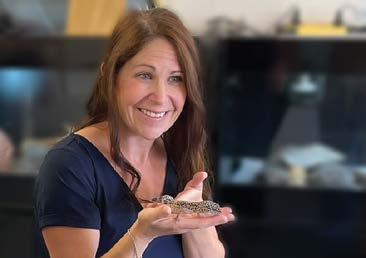
The Society’s Members help us in our work to grow pathways of knowledge to enable science and research to be shared for the benefit of all. The diverse membership includes our nationwide network of Branches, Constituent Organisations, Affiliate Organisations, and individuals engaged in the knowledge sector in Aotearoa New Zealand. Here we publish highlights of two Members who shared their stories in our newsletters this year.
MEMA O TE APĀRANGI | MEMBER
PROFILE: KRISTIE CAMERON
Kristie Cameron is one of two Co-Chairs on the Committee for the Society's Early Career Researcher (ECR) Forum.
I am an Associate Professor at Unitec in the School of Environmental and Animal Sciences, teaching animal husbandry, behaviour and welfare to undergraduate students, and teaching research methods for the new Master of Applied Science degree. I use behavioural economic models and apply the findings to improve husbandry and welfare in companion animals. My research related to brushtail possums and has been used to inform pest control strategies.
I joined the ECR committee in 2020 and was selected as a Co-Chair in 2024. I was involved in He Pito Mata (our ECR wānanga) in 2021 and 2023 and I have facilitated webinars for ECRs on career development, transitioning roles, and how to persevere in the grant system.
The ECR Forum is a group of researchers within about ten years of achieving their PhD. We have members from universities, institutes of technology and polytechnics, industry training organisations, and private and Crown Research Institutes. The Forum fosters a collaborative, communicative, and respected community to engage and enhance opportunities for ECRs in Aotearoa New Zealand.
MEMA O TE APĀRANGI |
MEMBER PROFILE: MOON CHEN
Moon Chen is Vice President of the Hawke’s Bay Branch of the Society.
I am a student researcher with the breeding team at the Hawke's Bay site of Plant & Food Research. My research focuses on developing new apple cultivars with resistance to fire blight disease and reduced chilling requirements to adapt to the impacts of climate change. The methods I apply include biotechnological techniques, quantitative trait loci mapping, genome-wide association studies, and RNA-sequencing to identify and exploit genetic regions that control important traits.
My passion for science was ignited by a fascination with the natural world and a desire to understand the underlying mechanisms driving biological processes. Additionally, the opportunity to address real-world challenges, such as the impact of climate change on agriculture, has been a key motivator in my pursuit of a career in science.

I have been involved with the Hawke's Bay Branch of the Society for the past four years, serving on the committee. Part of my motivation to join was that my dormancy research was funded by the government's Catalyst Fund, managed by the Society. This support inspired me to contribute to the Branch, where I help organise public lectures and promote them to the community.
The Hawke's Bay Branch celebrated its 150th anniversary in 2024, marking a significant milestone in its history."
MOON CHEN
The Hawke's Bay Branch celebrated its 150th anniversary in 2024, marking a significant milestone in its history. Our goals include strengthening connections with local schools, supporting initiatives like the House of Science, and enhancing our outreach through platforms such as Hawke’s Bay Scientists on Air. We aim to inspire the young generation's interest in science and increase public awareness of how scientific research contributes to daily life.

Harnessing the knowledge of the Pacific

ON 23 OCTOBER 2024, THE PRIME MINISTER OF SAMOA OFFICIALLY LAUNCHED THE PACIFIC ACADEMY OF SCIENCES AND WELCOMED ITS FOUNDATION FELLOWS.
The launch marked an important milestone in establishing a regional collaboration in the pursuit of knowledge for a prosperous and thriving Pacific Islands region. The Academy will advance the natural and social sciences, the humanities, Indigenous knowledge, and technology for the benefit of the Pacific Islands region and beyond.
Prime Minister of Samoa Hon Fiame Dr Naomi Mata’afa offered her warmest congratulations to the newly elected Foundation Fellows and said the launch marked a historic opportunity to give voice to science in and from the Pacific Islands.
“Today’s challenges transcend borders,” Prime Minister Mata’afa said. “They require international collaboration among scientists and experts of all disciplines to curate knowledge and scientific evidence that can inform public policy and guide our actions.”
Pacific Academy of Sciences Foundation Fellows, Establishment Committee and supporters.
Salote Austin, Oceania Programme Manager at the International Science Council’s Regional Focal Point for Asia and the Pacific, hosted by the Society, who supported the Pacific Academy of Sciences.

HIGH-LEVEL VISIT FROM FIJI NATIONAL UNIVERSITY
In May 2025, Professor Unaisi Nabobo-Baba, the ViceChancellor of Fiji National University, visited the Society with Melania Baba, the First Secretary at Fiji’s High Commission to New Zealand, and nine Fijian academics and senior leaders from Fiji National University.
The delegation visited Aotearoa New Zealand to build relationships with the government and universities, research institutes, and wānanga. The discussion included the importance of science, technology, and the humanities; research into Indigenous knowledge and culture; and collaboration between our two organisations and the newly established Pacific Academy of Sciences.
The launch was facilitated by the National University of Samoa, the International Science Council, and the Australian Academy of Science, with the support of the Society and the Sasakawa Peace Foundation.
The Foundation Fellows are:
Professor Teatulohi (Lohi) Mataunaho (President of the Pacific Academy of Sciences), Vice Chancellor of Pacific Adventist University, Papua New Guinea
Professor Tuifuisa'a Patila Amosa, President of the National University of Samoa
Professor Palatasa (Tasa) Havea MNZM, Dean Pacific at Massey University
Assistant Professor Bwarenaba Kautu, Assistant Professor of Biology at Greenville University
Professor Transform Aqorau, Vice Chancellor of Solomon Islands National University
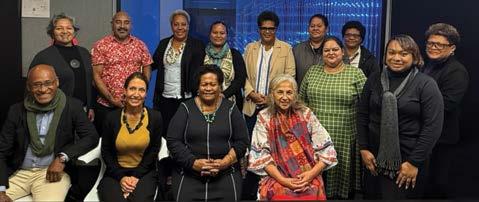
Professor Jodie Hunter, Professor of Mathematics Education at Massey University
Professor Maretta Kula-Semos, Director of Higher Degrees at Divine World University, Papua New Guinea
Professor Macquin Maino, Head of the School of Agriculture at Papua New Guinea University of Technology
Professor Steven Ratuva FRSNZ, Pro-Vice-Chancellor Pacific at the University of Canterbury
Professor Jemaima Tiatia-Siau, Pro-Vice-Chancellor Pacific at the University of Auckland
Professor Ioana Tuugalei Chan Mow, Professor of Computing and Computer Education at the National University of Samoa
Professor Jito Vanualailai, Deputy ViceChancellor and Vice-President of Education at the University of the South Pacific
Professor Sir Peter Gluckman FRSNZ FRS, President of the International Science Council, was made an Honorary Fellow of the new academy on its launch.
Dumont d'Urville 20th Anniversary
On 7 May 2025, we celebrated the 20th Anniversary of funding from the Dumont d’Urville programme and the Catalyst Fund, which support collaboration between researchers in France and Aotearoa New Zealand. The event was opened by Her Excellency Mme Laurence Beau, French Ambassador to New Zealand, Paul Atkins, Chief Executive of the Society, and Hon Dr Shane Reti, Minister of Science, Innovation and Technology. (by recorded video message).
The celebration was an opportunity for researchers from Aotearoa to present their success stories of their collaborations with French organisations using the Dumont d’Urville funding scheme. The results of an impact assessment were presented, demonstrating the success of the programme over the past 20 years.
A new book, published as a testament to two decades of joint research, highlights a vast range of achievements and reinforces the importance of the continued partnership.


New resources on animal ethics include mātauranga Māori
In September 2024, the Australian and New Zealand Council for the Care of Animals in Research and Teaching released resources for teaching and learning about traditional Māori knowledge of animals and how Māori concepts can inform animal ethics.
These resources were written by Professor Georgina Tuari Stewart , an expert in science education from Te Wānanga Aronui o Tāmaki Makau Rau – Auckland University of Technology, and Associate Professor Sally Birdsall , from Waipapa Taumata Rau –University of Auckland.
EXPLORE RESOURCES, HOSTED BY THE SCIENCE LEARNING HUB Bit.ly/2024HL-81
“Māori worldviews see all animals as related to humans through shared whakapapa, hence being ethically significant in their own right, and worthy of respect from humans.
In this way, the Māori concepts provide a logical basis for the Three Rs (replace, reduce, refine) of animal ethics in practice”.

PROFESSOR GEORGINA STEWART
Finding HOPE and curiosity in Japan
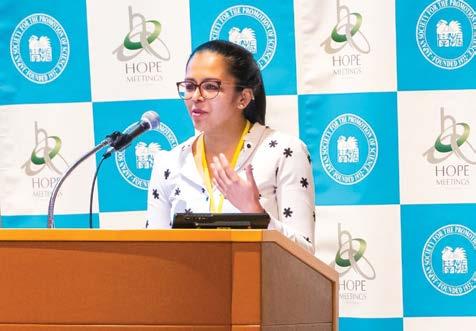
The Society selected five New Zealand early-career researchers to attend the HOPE meeting in Kyōto, Japan, organised by the Japan Society for the Promotion of Science.
The meeting allows early-career researchers from around the world to engage in interdisciplinary discussions with Nobel laureates and other distinguished scientists.
One of the New Zealand participants, Dr Jesin James, from Waipapa Taumata Rau – University of Auckland, was awarded one of six 'best poster presentations' at the HOPE meeting, which she found very valuable. She felt that it broadened her thinking beyond engineering, to include the foundational science for the technology she is developing.
Jesin is a Senior Lecturer from the Department of Electrical, Computer, and Software Engineering, who works on developing inclusive and equitable technologies for speech and language. “People should not be forced to speak a certain way so that technology understands them; instead, technology should be able to understand our diverse languages and accents", Jesin said.
Dr Jesin James
Tri-Academy Partnership
The Tri-Academy Partnership on Indigenous Engagement was hosted by the Royal Society of Canada on the unceded territories of the x w məθ k ʷəy ̓əm (Musqueam), Skwxwú7mesh (Squamish), and sə lilwəta ɬ/ Selilwitulh (Tsleil-Waututh) nations. This was the first of three events planned with the Royal Society Te Apārangi and the Australian Academy of Sciences, to establish an international, Indigenous-led research agenda.
Eight Ngā Ahurei a Te Apārangi Fellows represented Aotearoa New Zealand in Vancouver on 5-6 November 2024, accompanied by our President Distinguished Professor Dame Jane Harding FRSNZ, Chief Executive Paul Atkins, and Pou Tiaki Kahu Hotere (Ngāti Maniapoto, Te Aupōuri, Te Rarawa, Ngāti Wai):
• Professor Gail Gillon FRSNZ (Ngāi Tahu)
• Professor Helen Moewaka Barnes FRSNZ (Te Kapotai, Ngāpuhi-nui-tonu)
• Professor Jarrod Haar FRSNZ (Ngāti Maniapoto, Ngāti Mahuta)
• Professor Carwyn Jones FRSNZ (Ngāti Kahungunu ki Te Wairoa)
• Professor Paul Kilmartin FRSNZ (Ngāi Tahu)
• Professor Tahu Kukutai FRSNZ (Ngāti Tiipa, Ngāti Māhanga, Ngāti Kinohaku, Te Aupōuri)
• Professor Leonie Pihama FRSNZ (Te Ātiawa, Taranaki, Waikato)
• Distinguished Professor Michelle Thompson-Fawcett FRSNZ (Ngāti Whātua)
The Summit enabled mutually respectful dialogue based on genuine intent. Indigenous scholars reinforced the message that academies and universities need to move beyond performative inclusion of Indigenous knowledges and researchers, toward active recognition of Indigenous knowledge systems and languages, to honour “where excellence also resides”.
More than 40 eminent Māori Fellows of Aotearoa’s Royal Society Te Apārangi, the third member of the Tri-Academy Partnership, are leading plans for the Society to host the second Summit in November 2025. This will include delegations of Fellows and other eminent scholars from Australia and Canada.


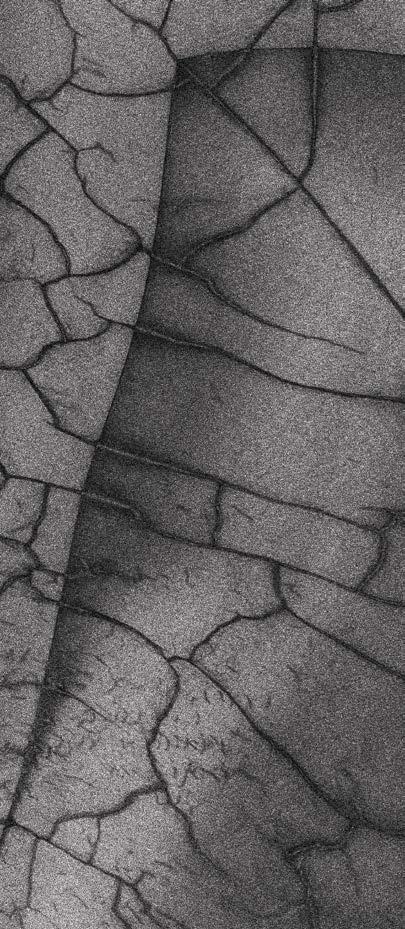
PROFESSIONAL DEVELOPMENT:
Independenceand growth 04 cultural capability


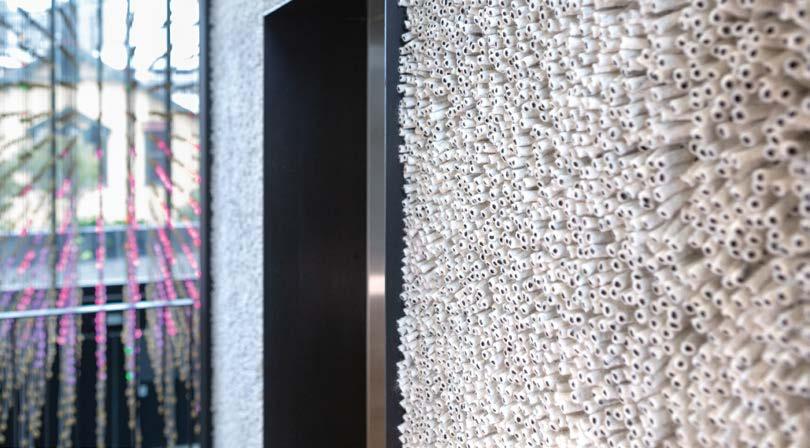
THE SOCIETY IS COMMITTED TO INSTILLING TE AO MĀORI DIMENSIONS INTO OUR RELATIONSHIPS, CULTURE, AND VALUES. THIS INCLUDES PROFESSIONAL DEVELOPMENT OPPORTUNITIES FOR STAFF TO BUILD THEIR CAPABILITY AND CONFIDENCE IN TE REO ME ŌNA TIKANGA (LANGUAGE AND CULTURE).
The Society partners with Te Ataarangi to offer structured lessons in te reo Māori for kaimahi. Our Pou Tiaki (Director, Māori) also advises staff and Councillors about appropriate use of tikanga such as karakia, waiata, and whakataukī. Staff led and participated in language revitalisation initiatives such as Te Wiki o Te Reo Māori. The Society also marks events such as Matariki.
In 2024, all staff had the opportunity to learn about Te Tiriti o Waitangi from Associate Professor Veronica Tawhai (Ngāti Porou, Ngāti Uepohatu) during a 2-day wānanga led by Te Atakura
Educators. In February 2025, kaimahi spent a morning learning about the history of Aotearoa New Zealand in an interactive way through the ‘Wall Walk’ experience, joined by members of Council and the Academy Executive Committee and by 14 teachers from the Science Teaching Leadership Programme. This workshop focuses on events which have shaped race relations in this country, and particularly their impact for Māori. The aim was to raise collective awareness of key historical events, and to improve cultural understanding across the Society.
Whaowhia tō kete mātauranga. Fill your mind with knowledge.
Sustainability
The Society is working towards eliminating waste and securing energy from renewable sources. As part of this we are assessing the current status and implementing improvements. In October 2024, 74 solar panels were installed on the roof at Te Whare Apārangi. Together they can generate up to 30kW at a time, with the aim of reducing the Society’s carbon footprint and power bill.


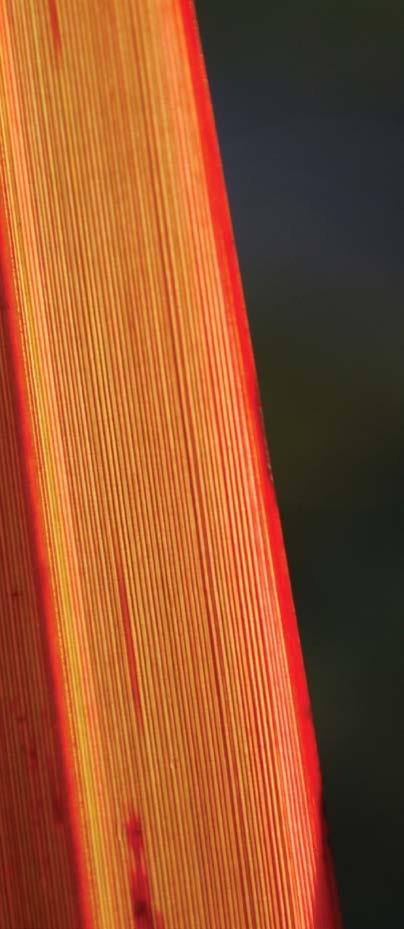
Our financials
The financial statements for the year to 30 June 2024 are for the Royal Society of New Zealand group, combining the Society and its associated Endowment Fund Trust. Overall, group equity is $29.903m at 30 June 2024 – an increase of $3.733m (14.3 percent) versus the 2023 year-end. This increase was significantly the result of the upward revaluation of all the land and buildings, including the investment property, at the Society's Thorndon campus. The total property valuation is now $18.430m, up from $16.500m.
The financial results for the Society (excluding the total property revaluation noted above, of $1.960m) was an operating surplus of $1.415m. The Endowment Fund Trust returned a surplus of $358,000 for the year. The reported Total Comprehensive Revenue & Expense for the group is $3.733m. The Society remains reliant on the provision of professional services to government for more than 75 percent of cash income. The Society managed nine contestable funds on behalf of the Government during the year, with $118.245m being paid out in the 12 months to 30 June 2024 – this was just over $4m more than the previous, 2023, financial year. (Refer Note 14 of the Financial Statements).
Our appointed auditors are Grant Thornton and their Independent Auditor's Report is included in the financial statements.
The Royal Society Te Apārangi is a not-for-profit organisation, with a statutory responsibility to advance and promote science, technology and the humanities in New Zealand. Registered charity: CC38796
RoyalSocietyNZ @royalsocietynz
Royal Society Te Aparangi

